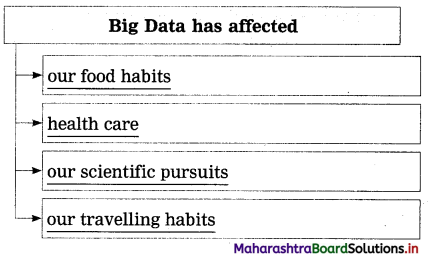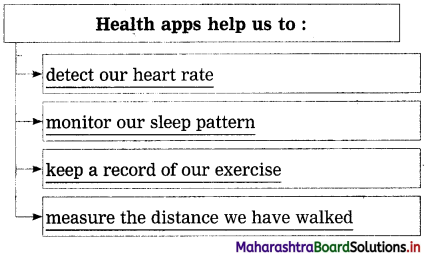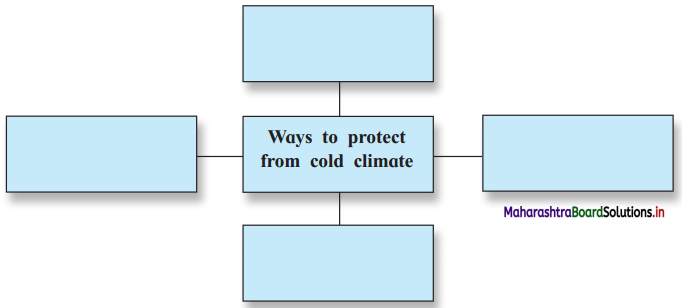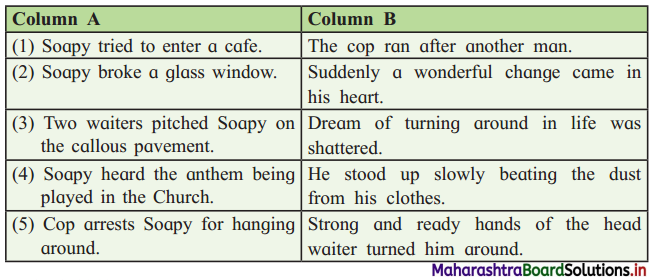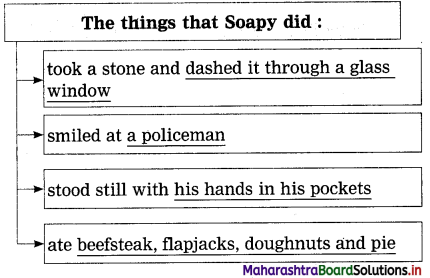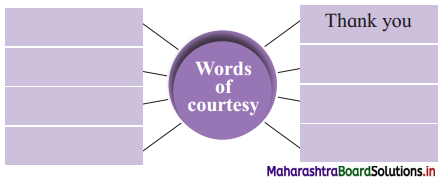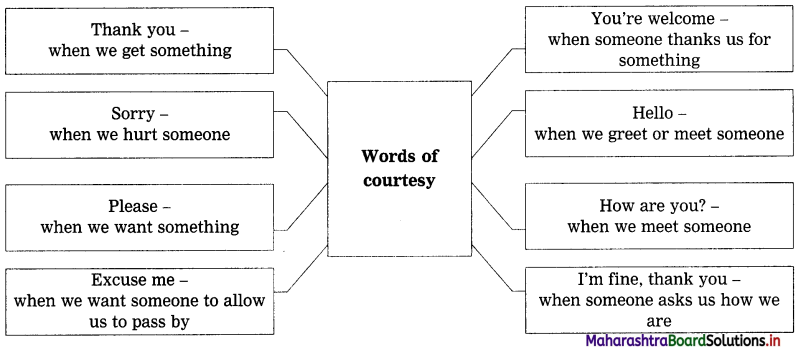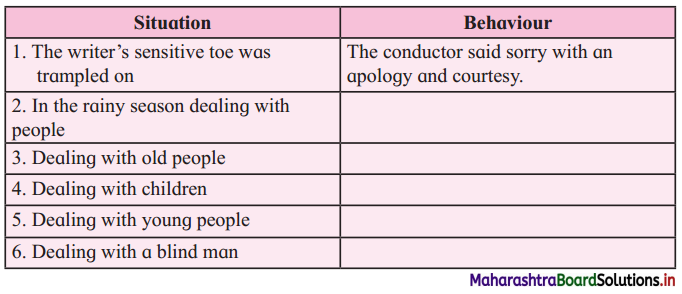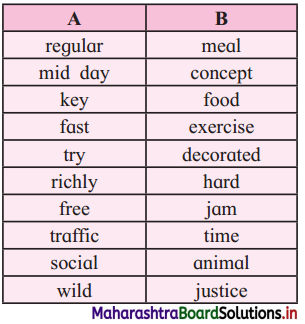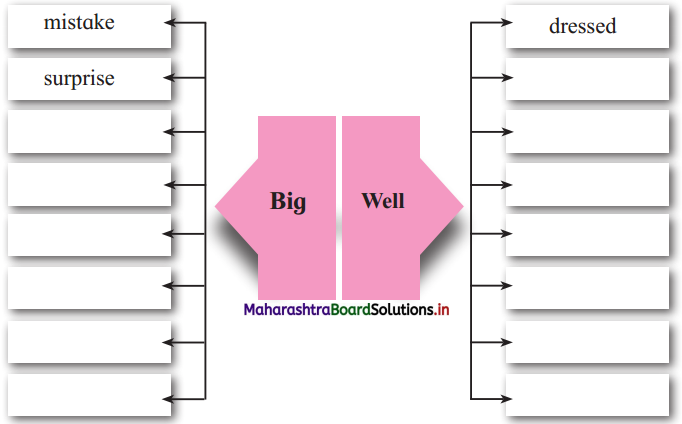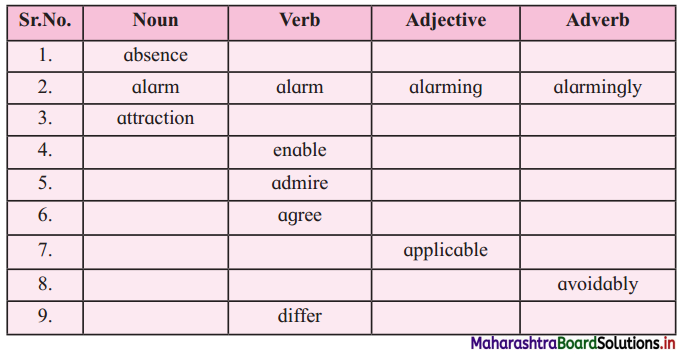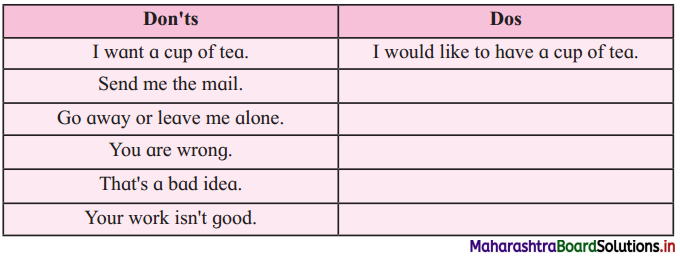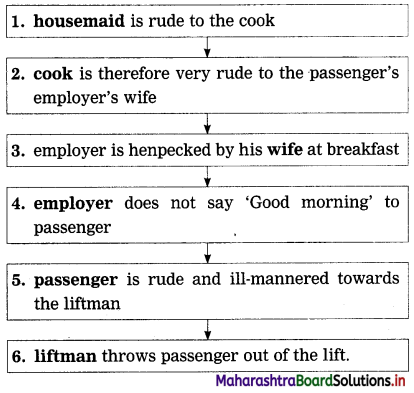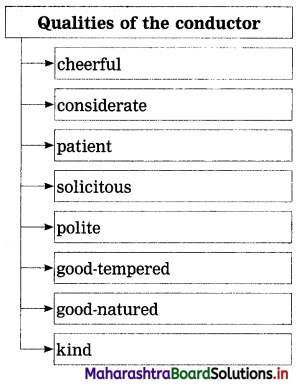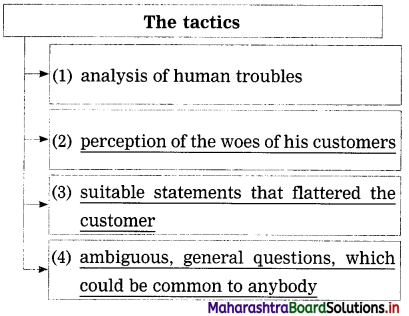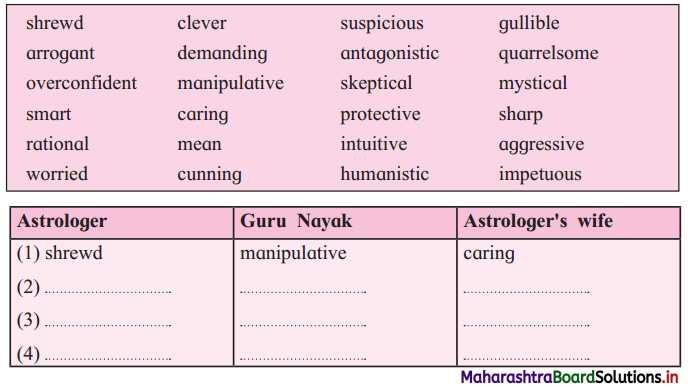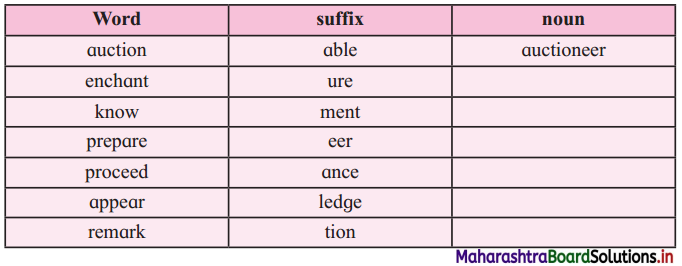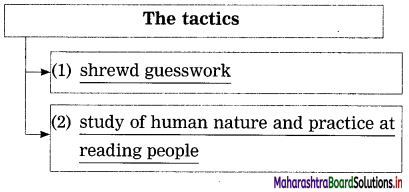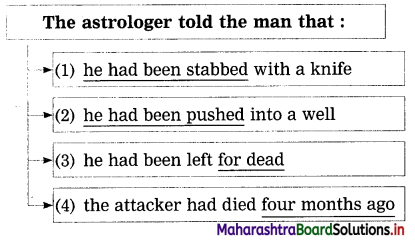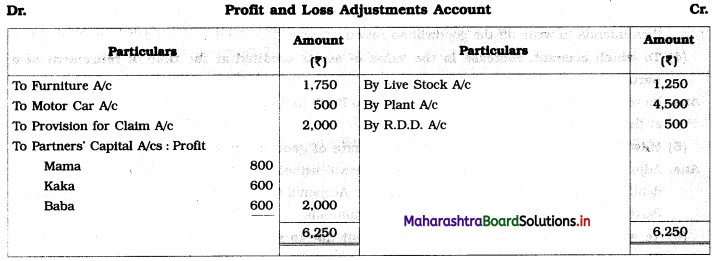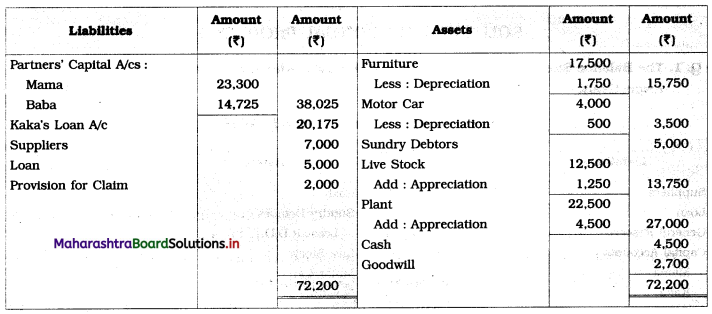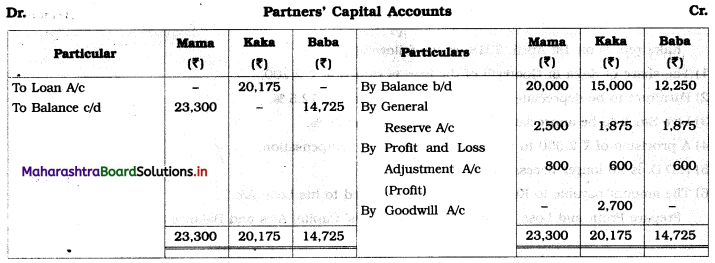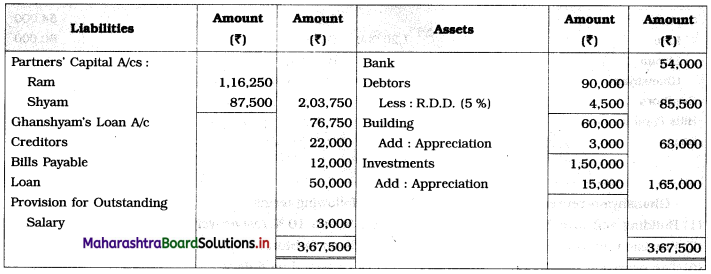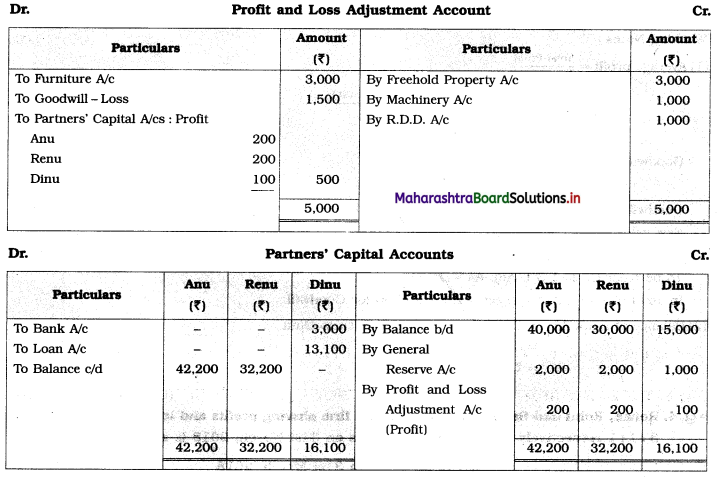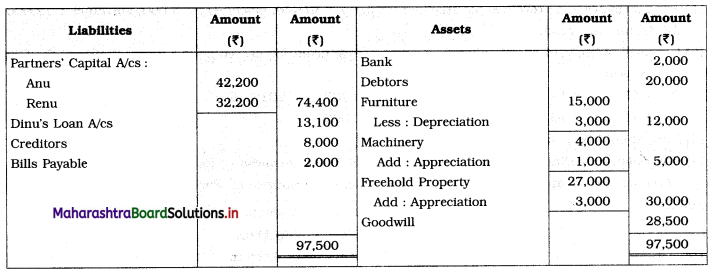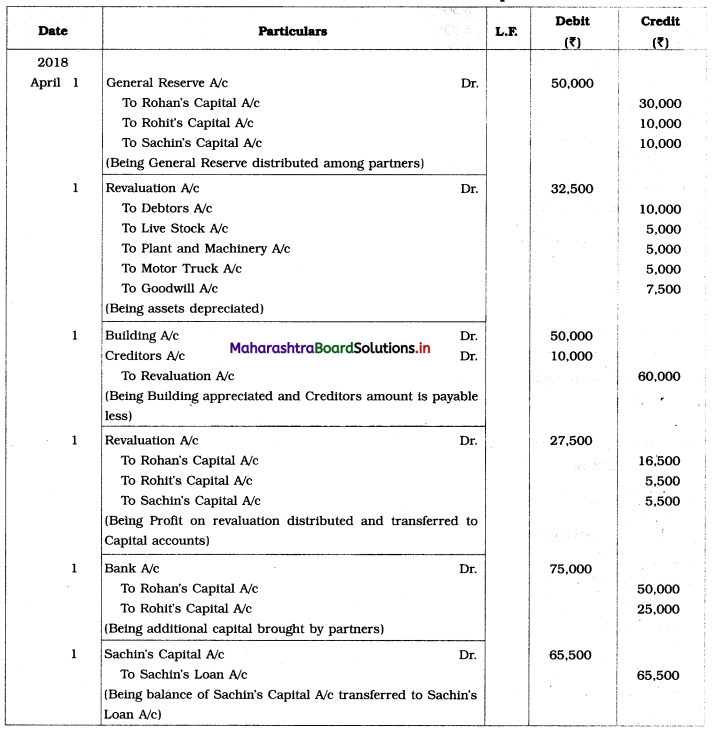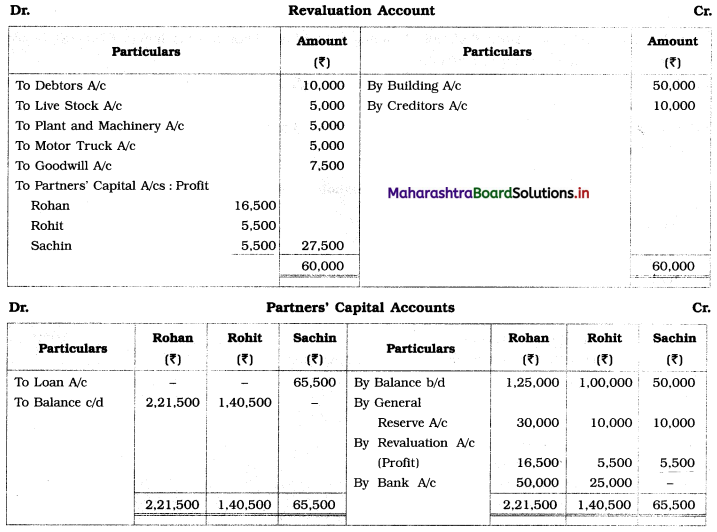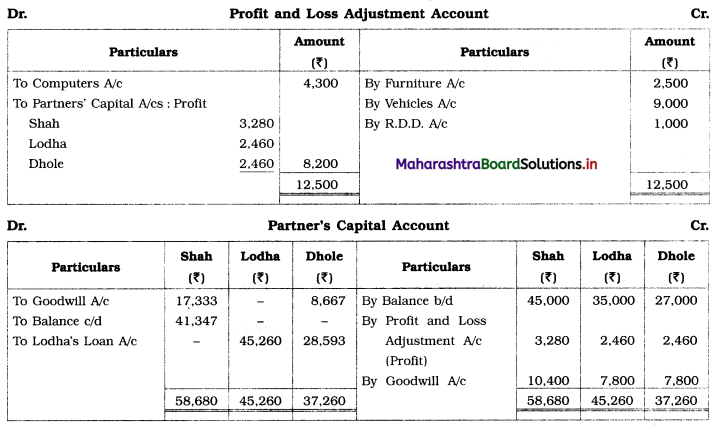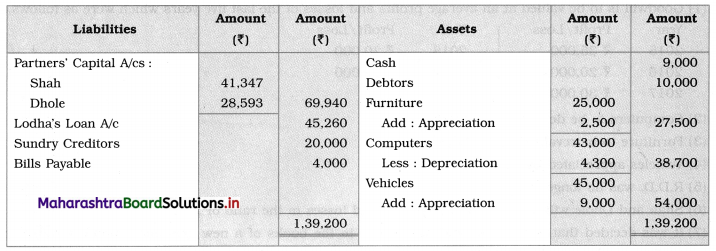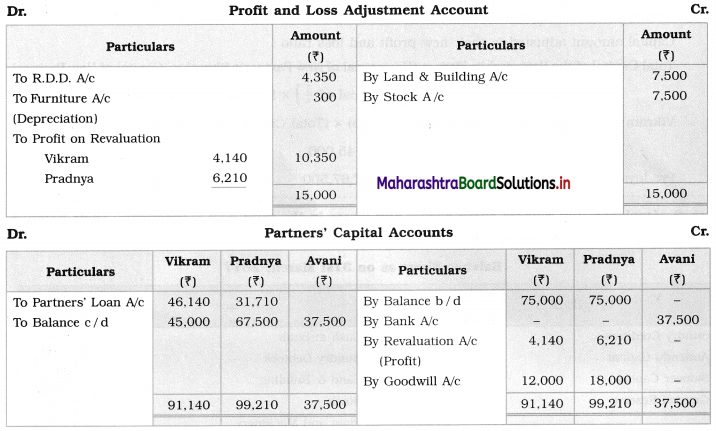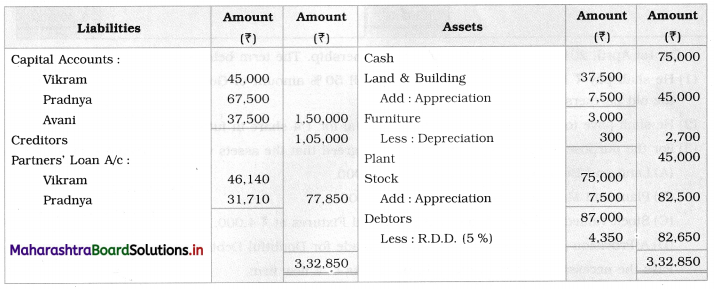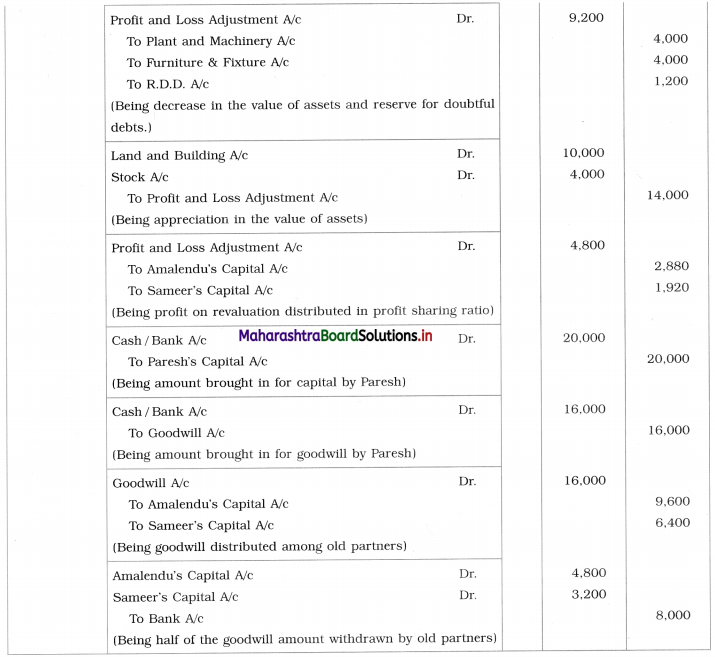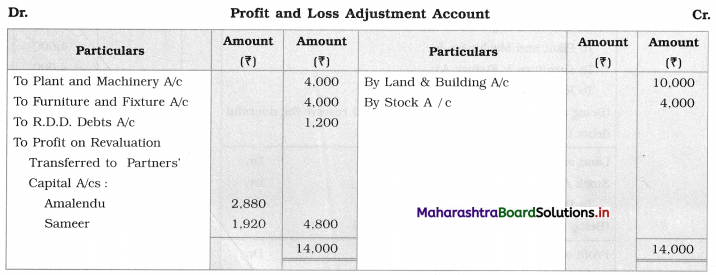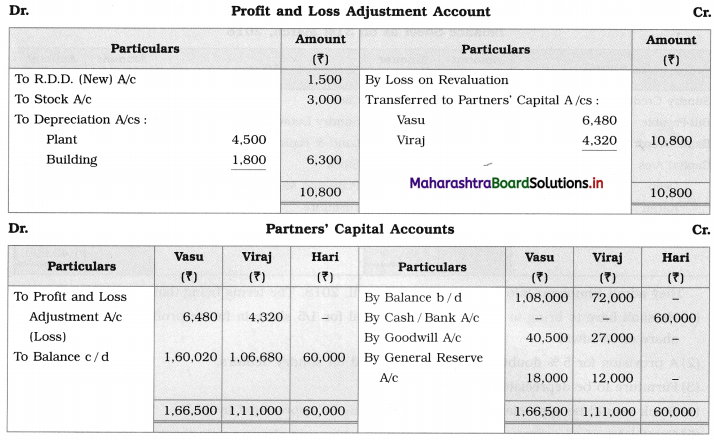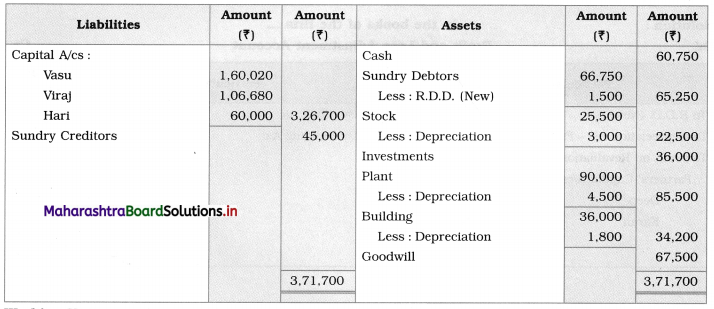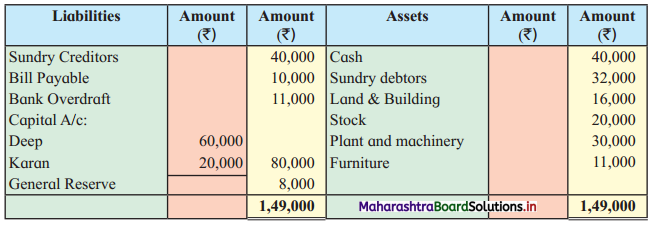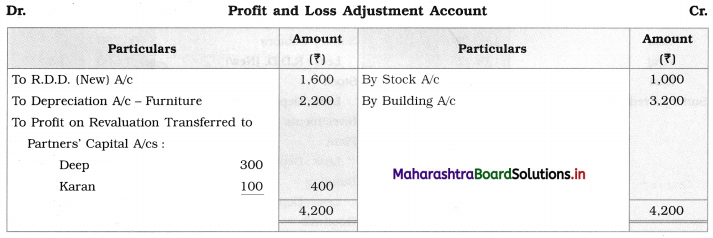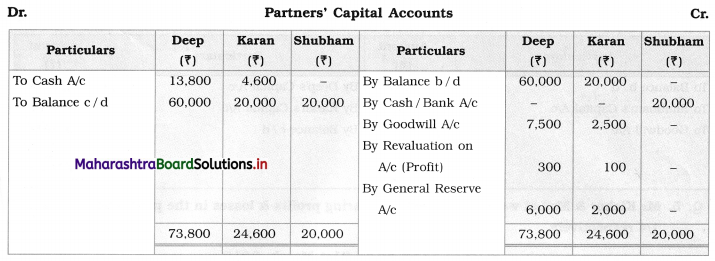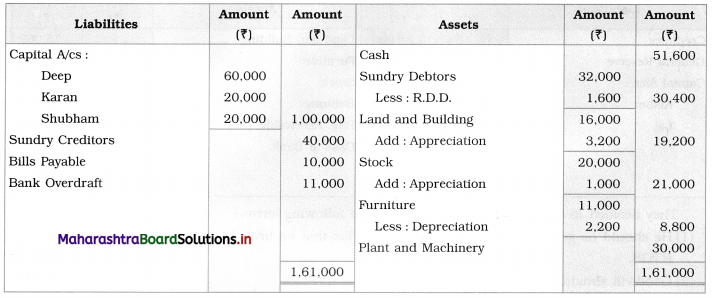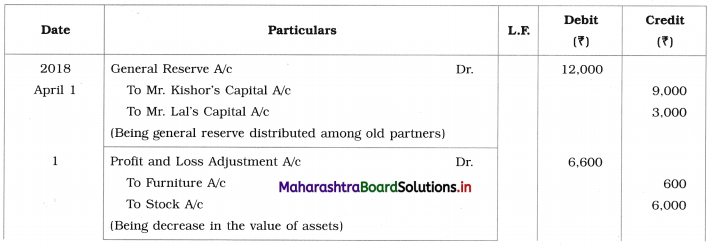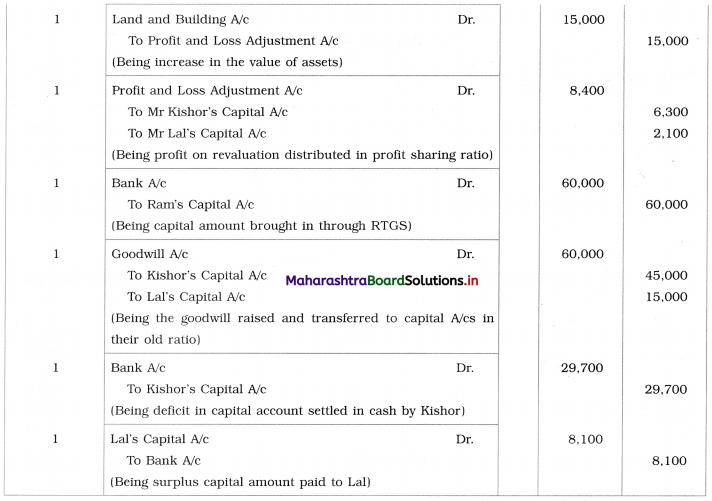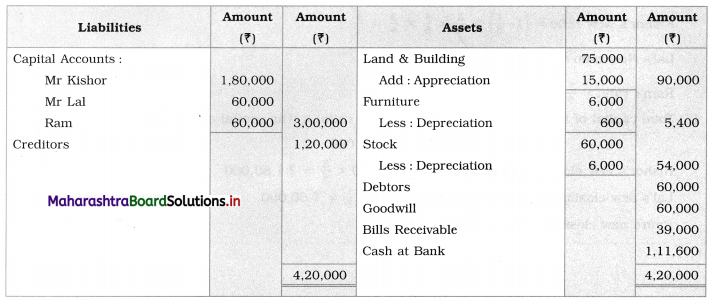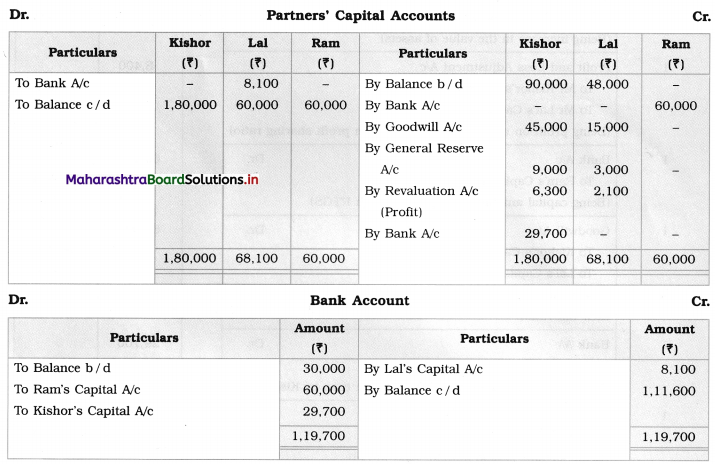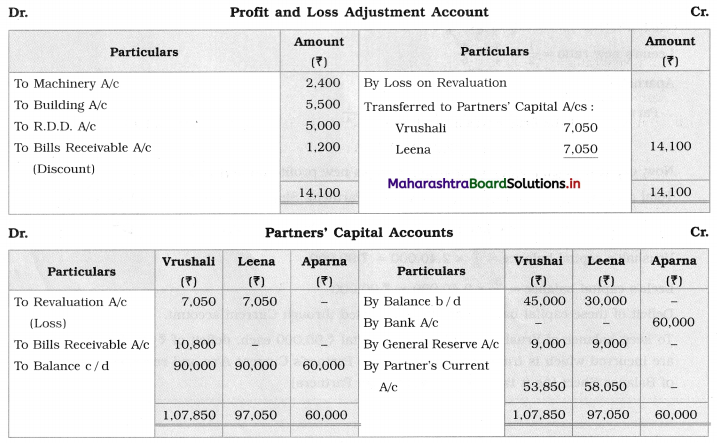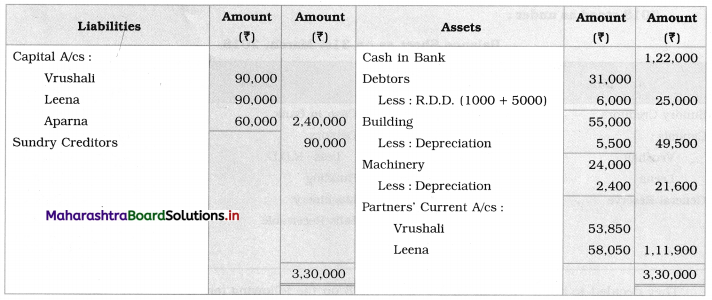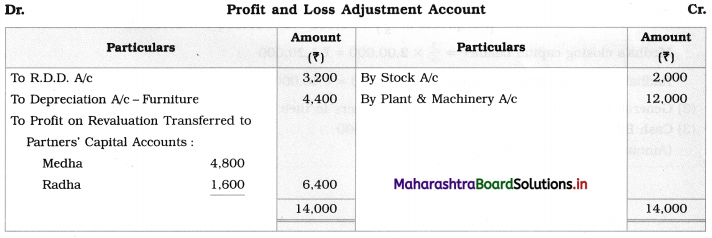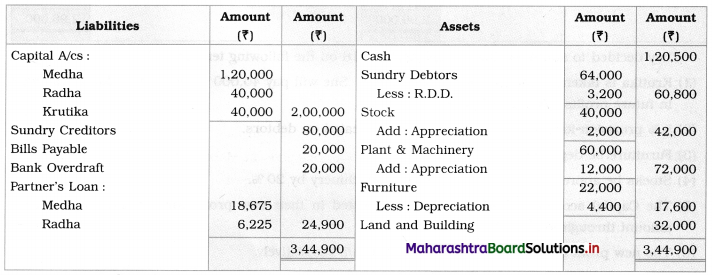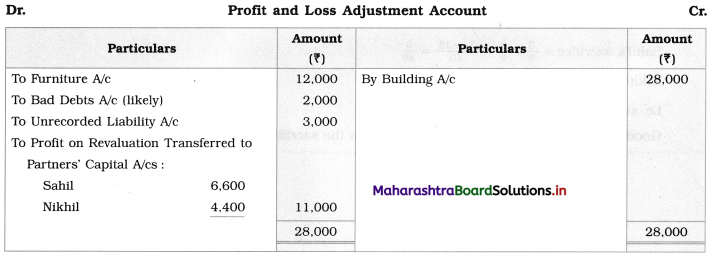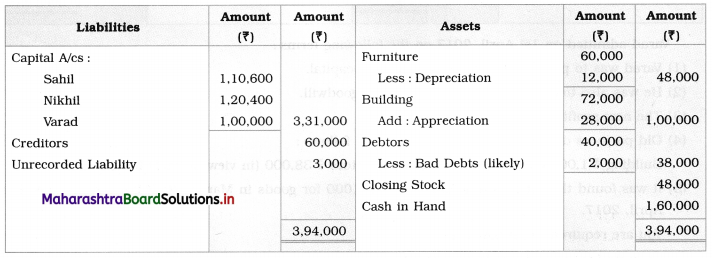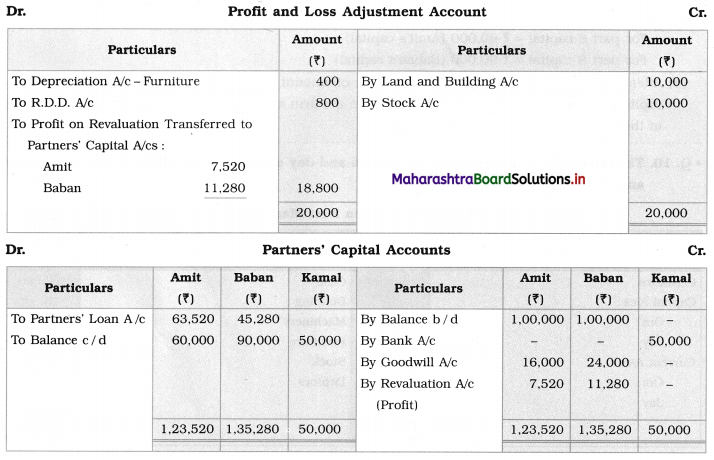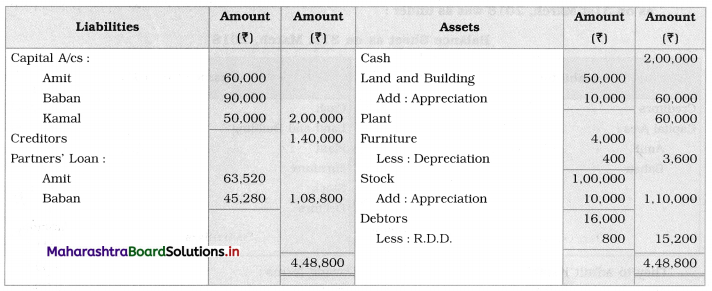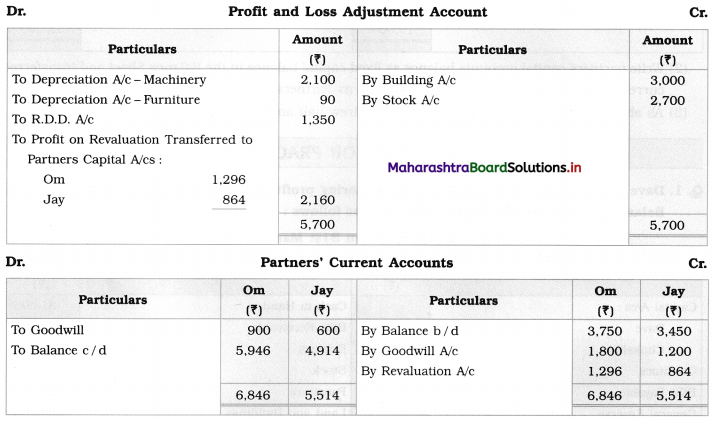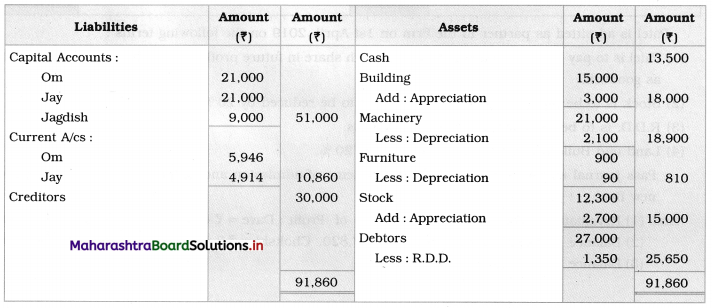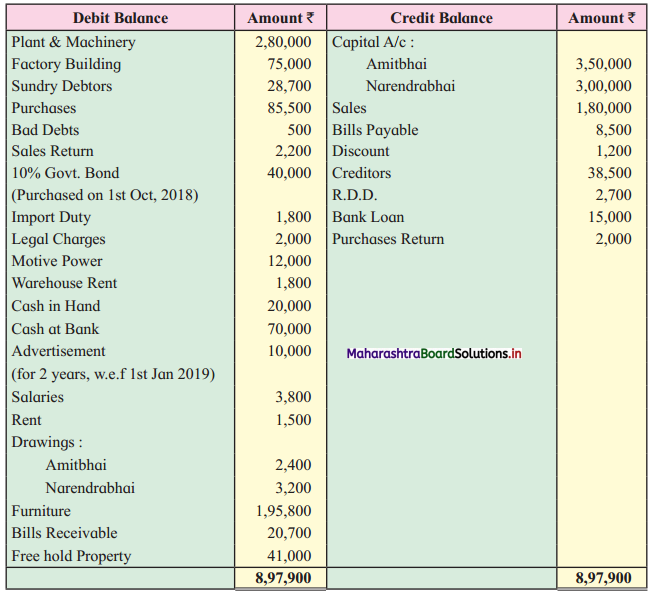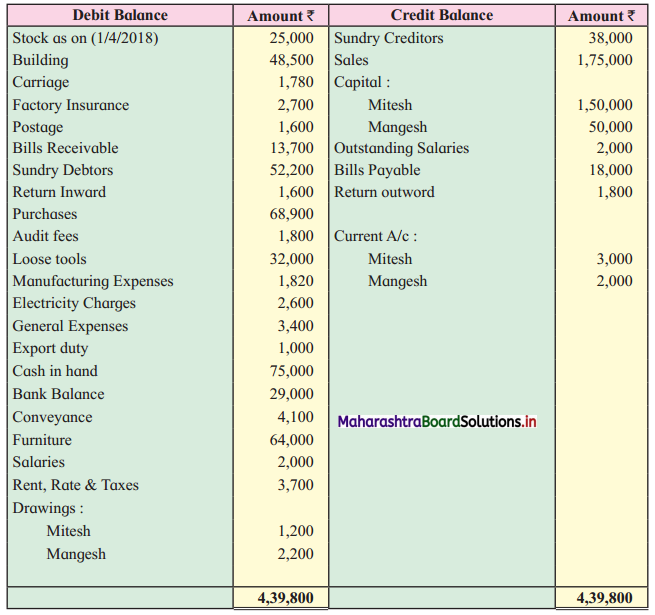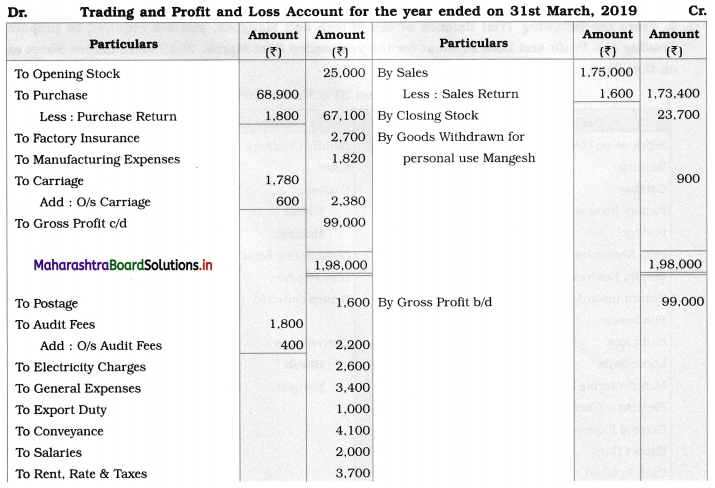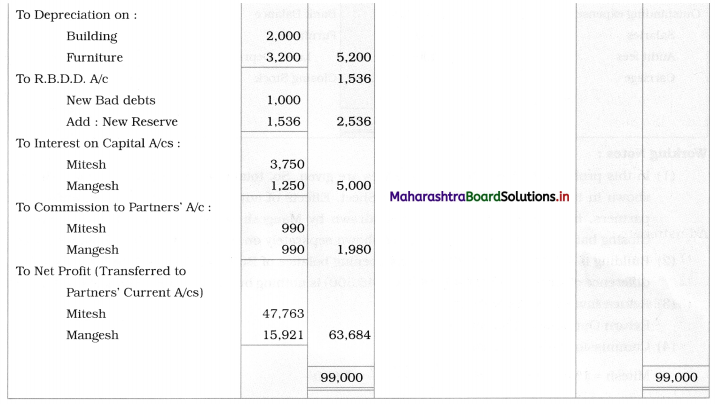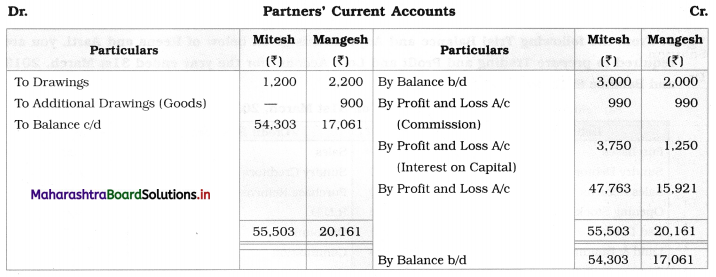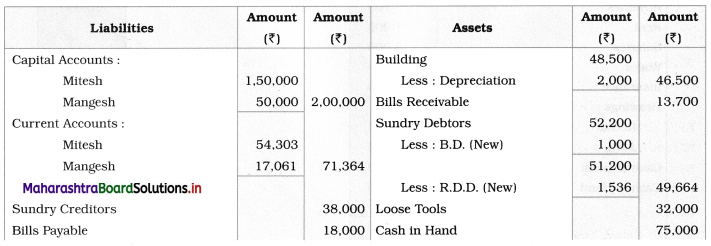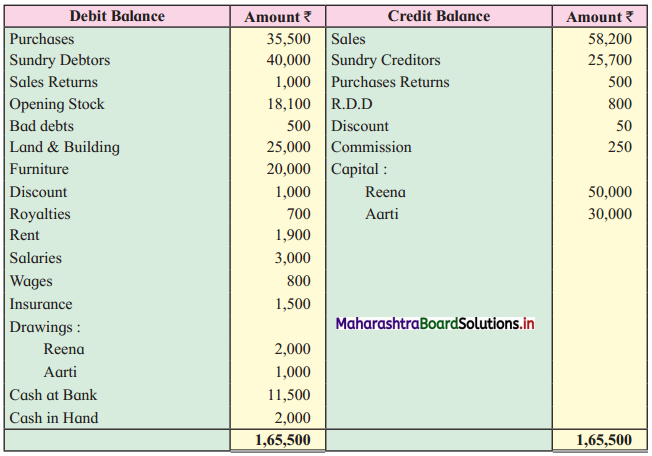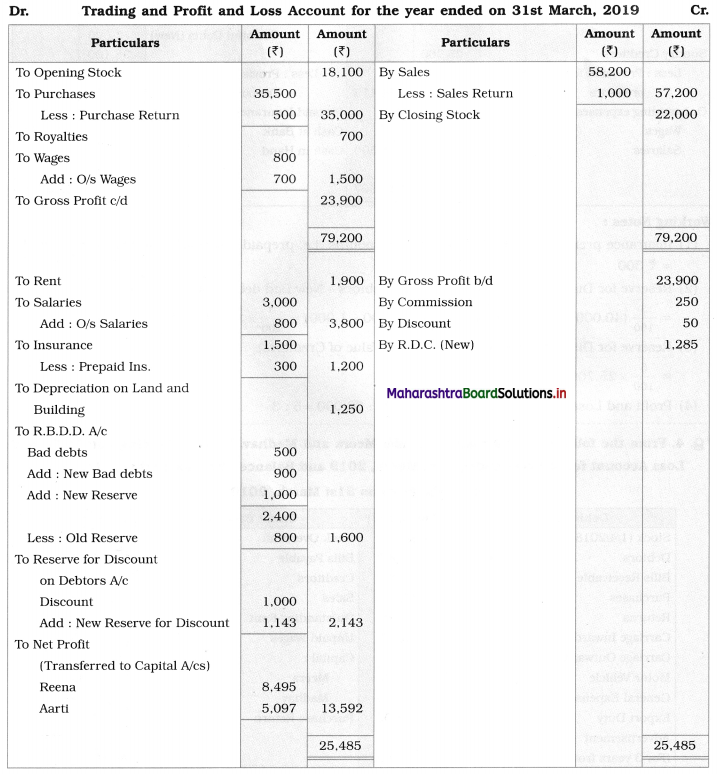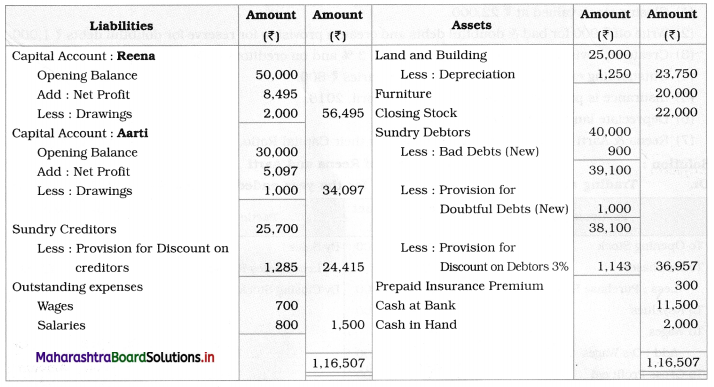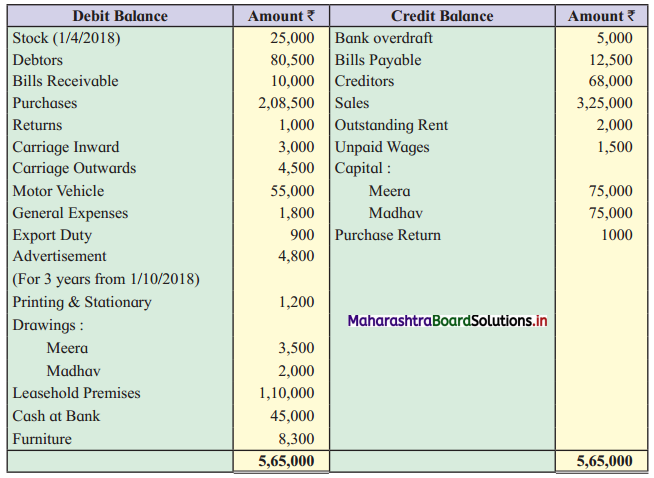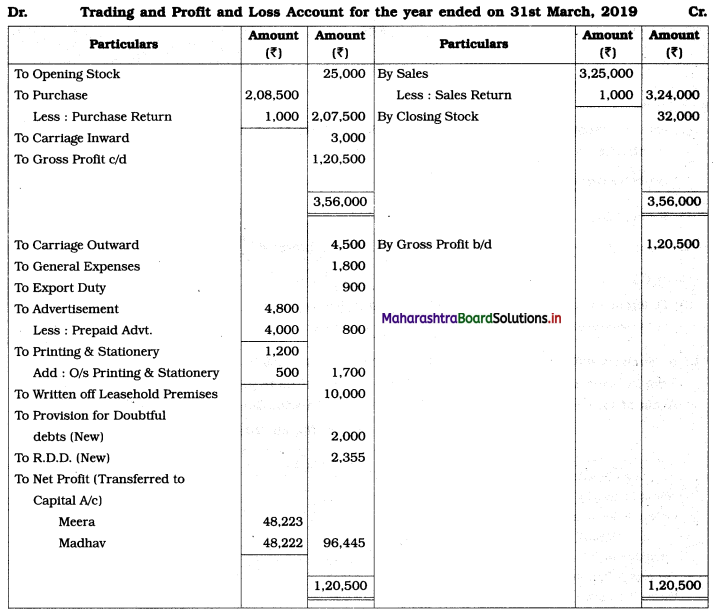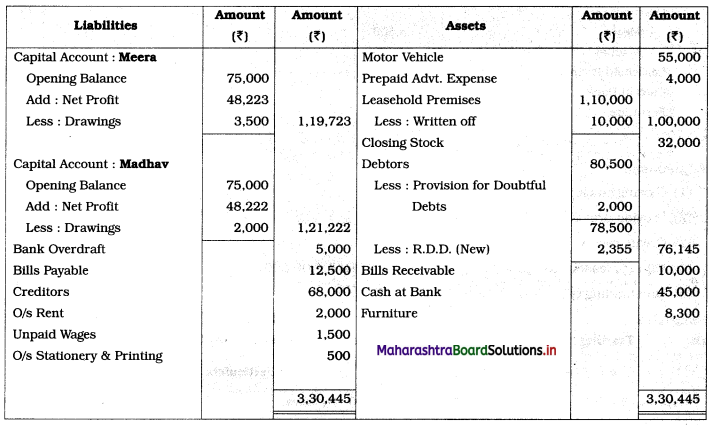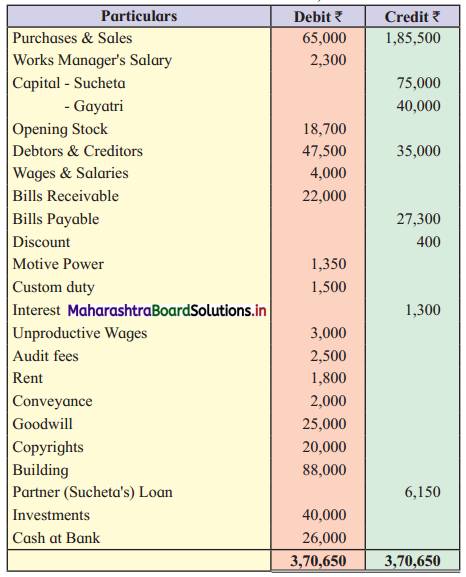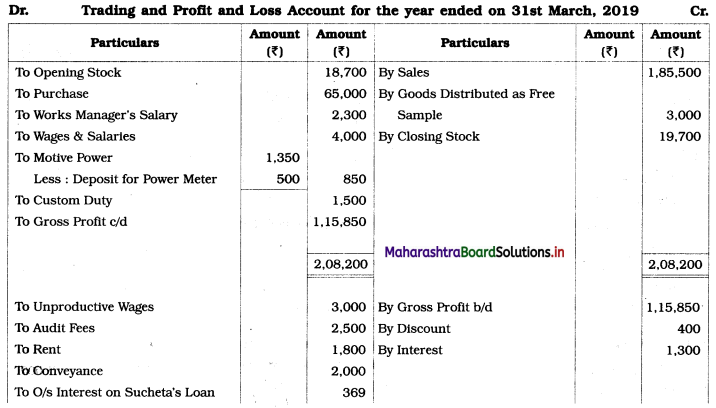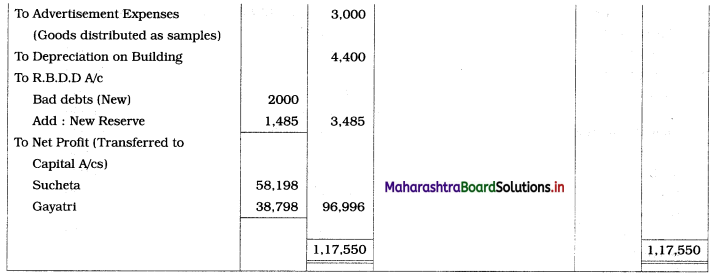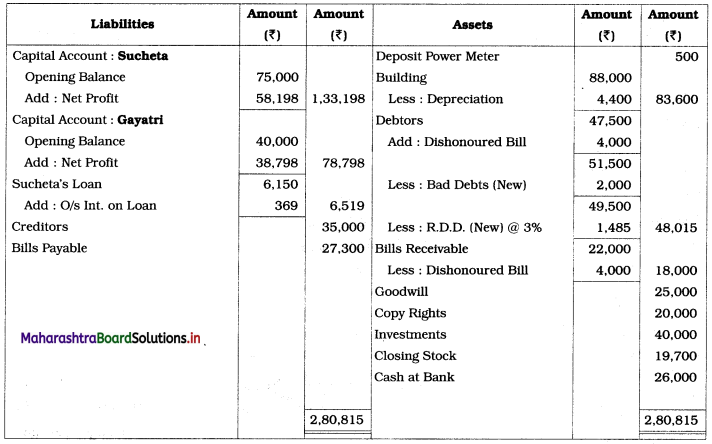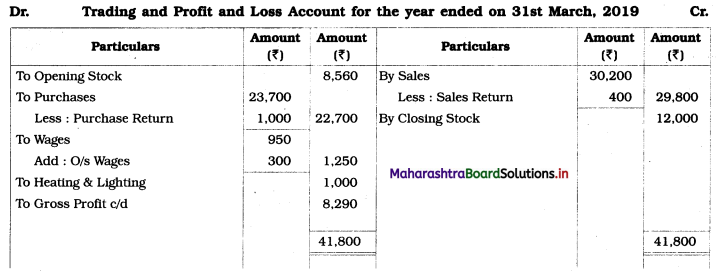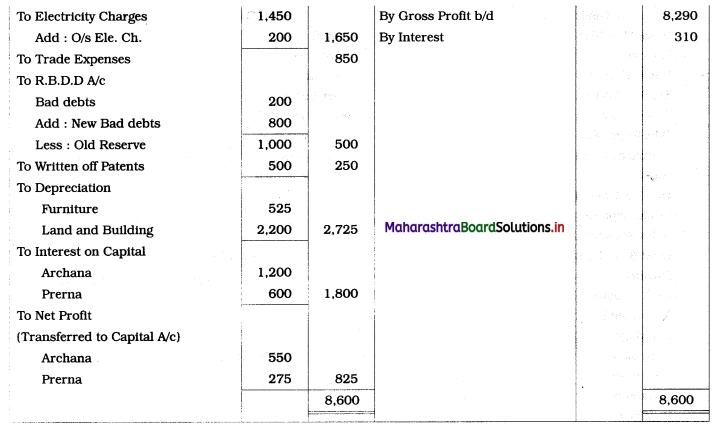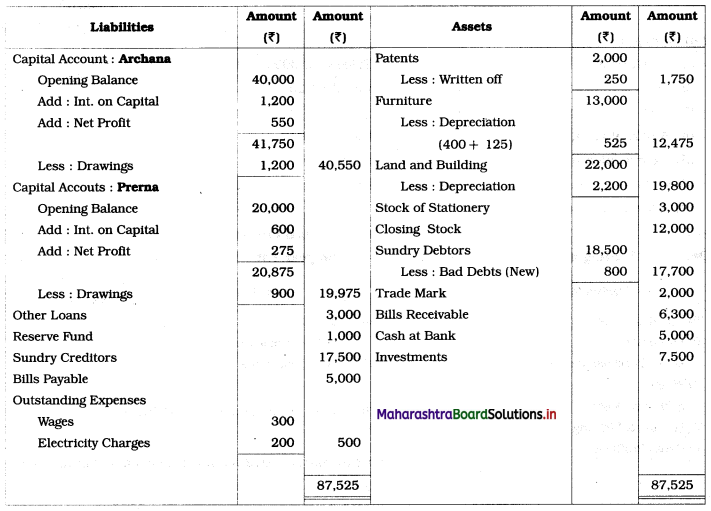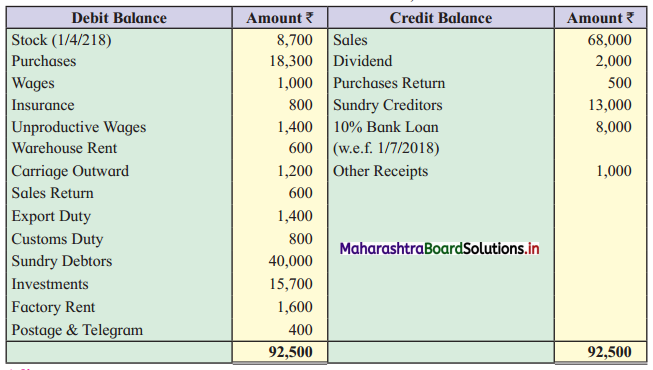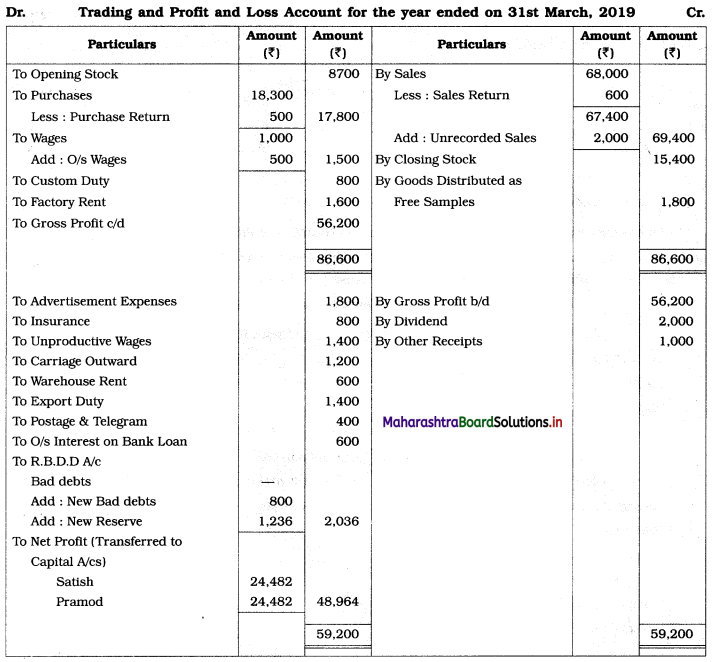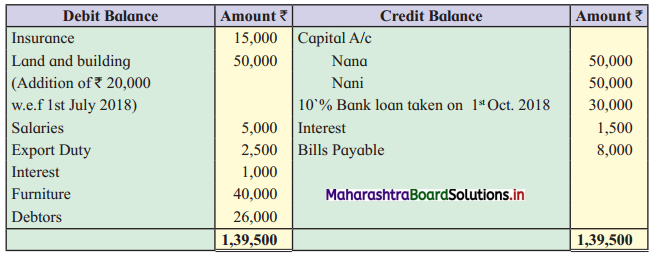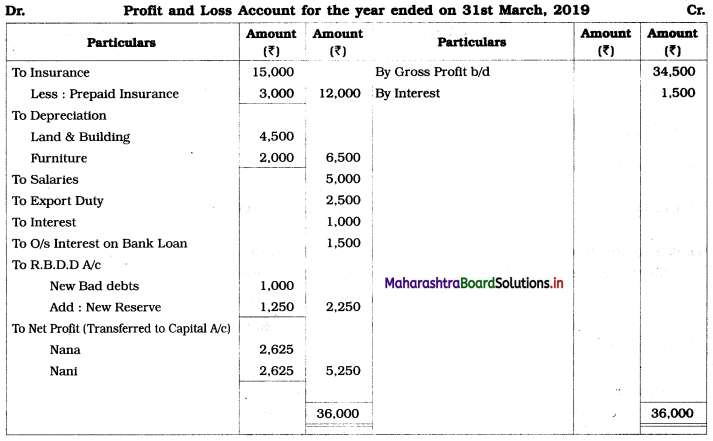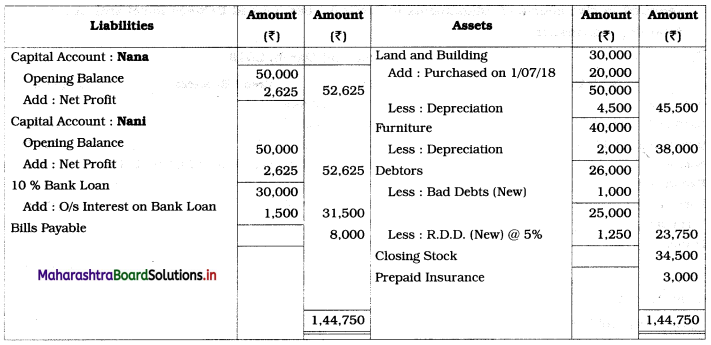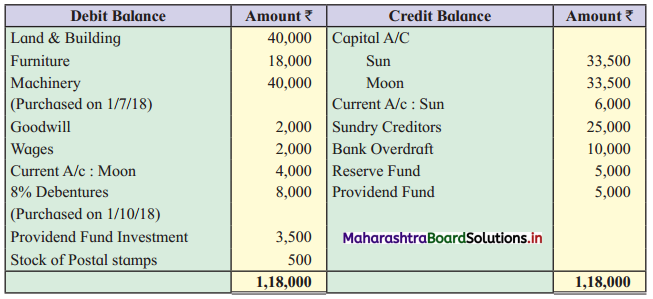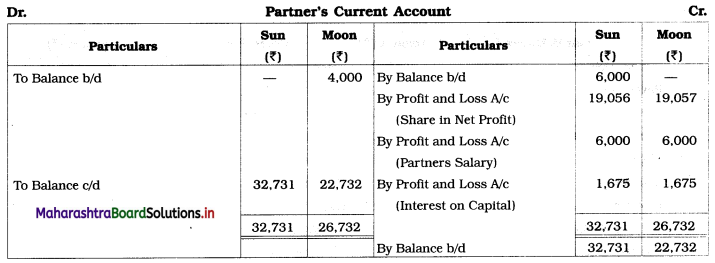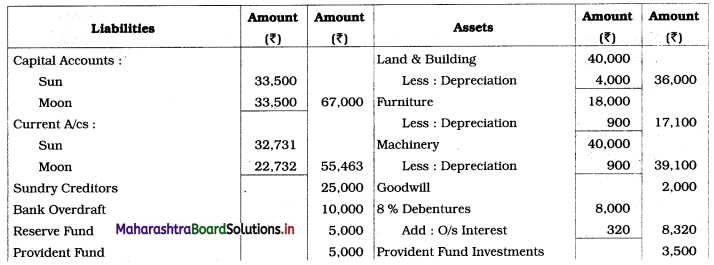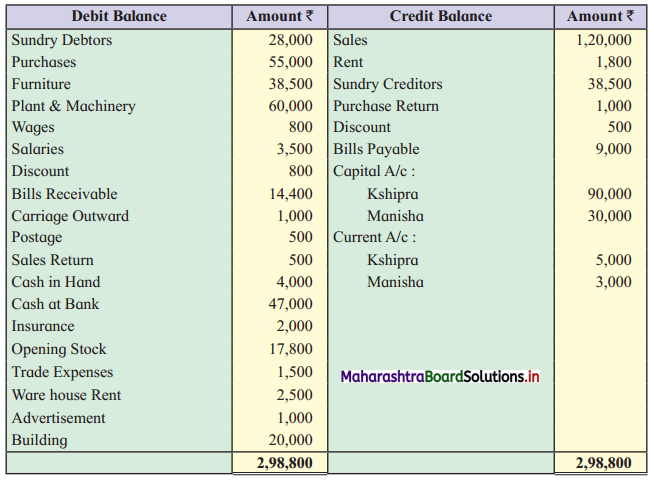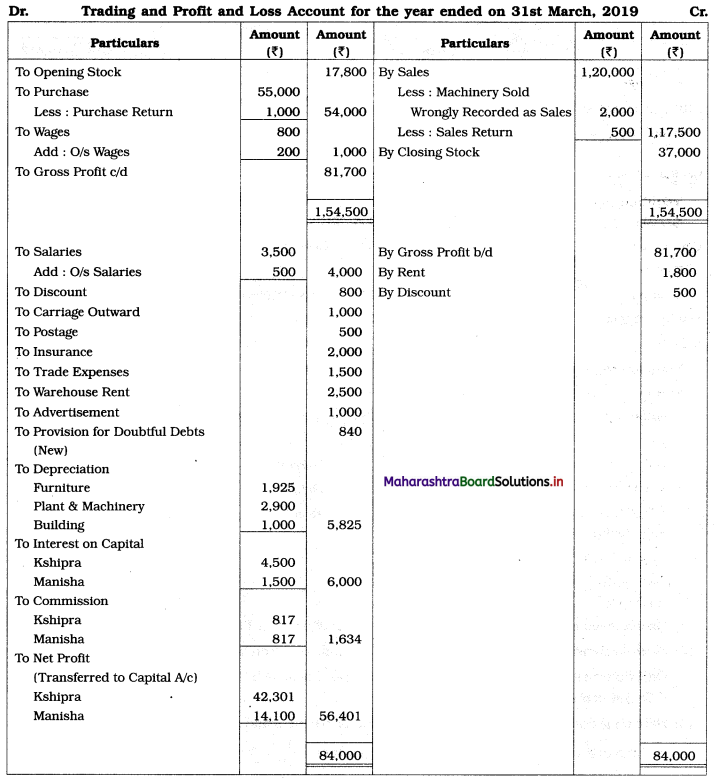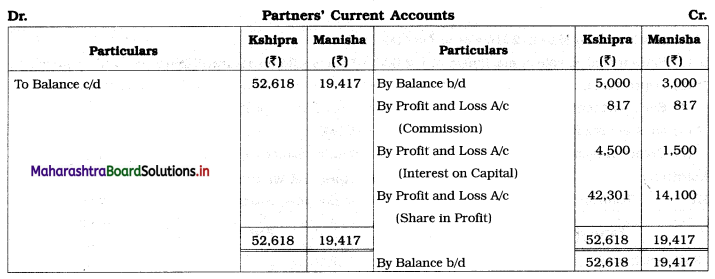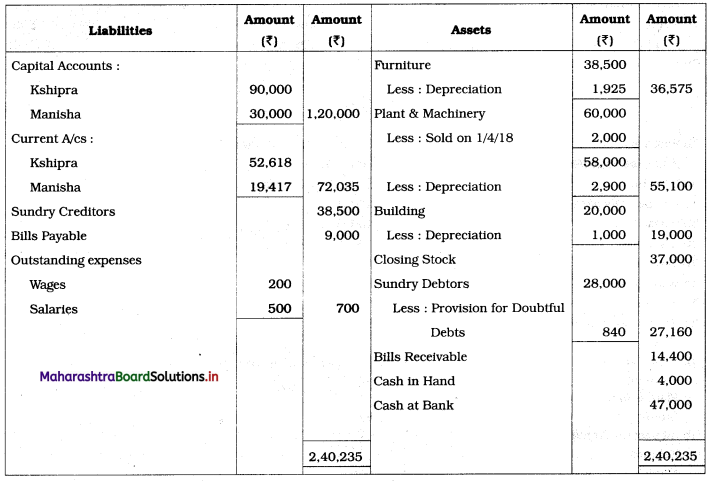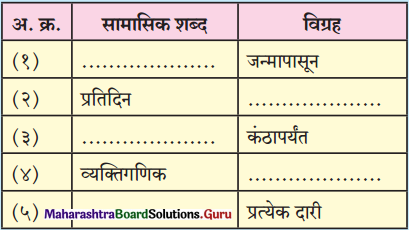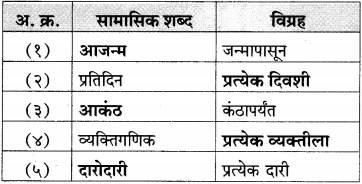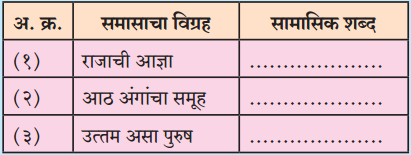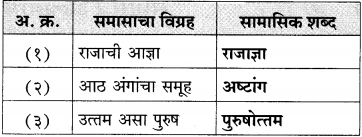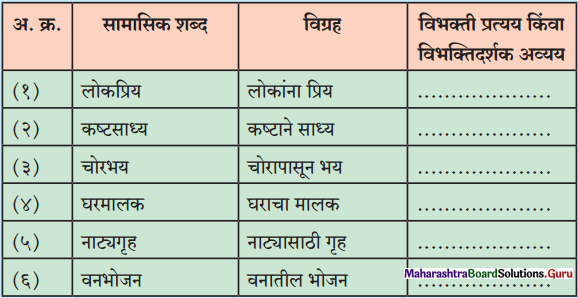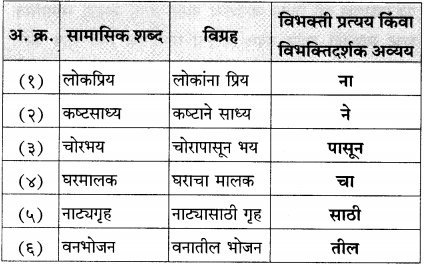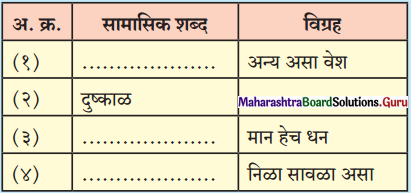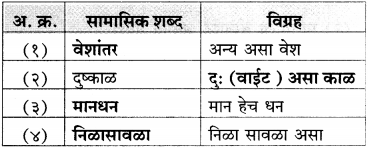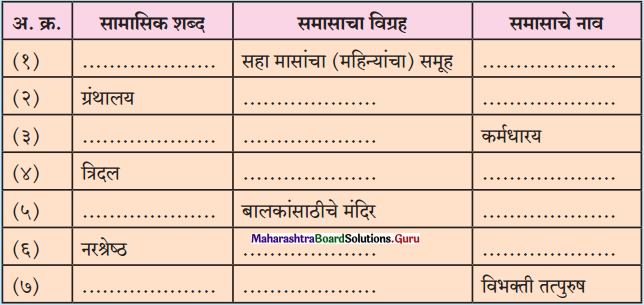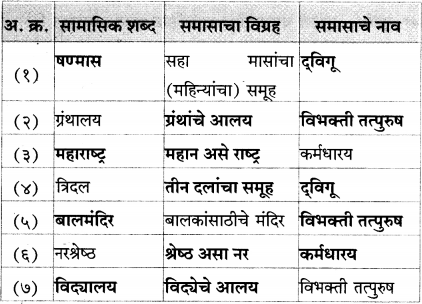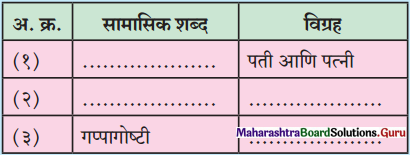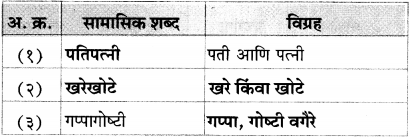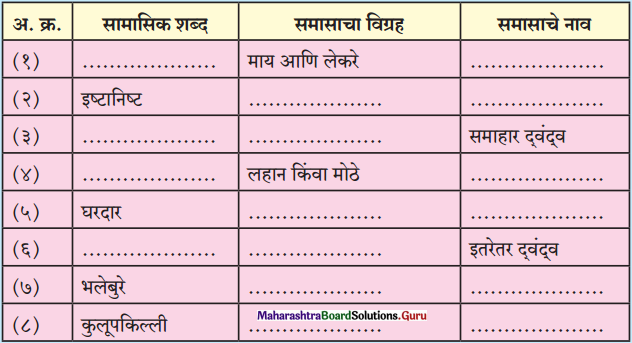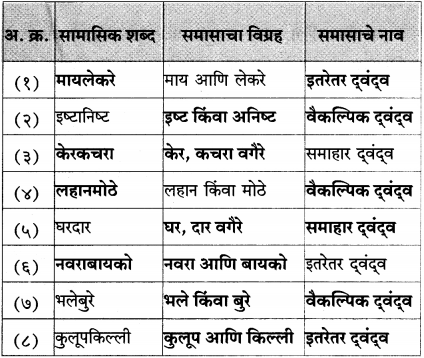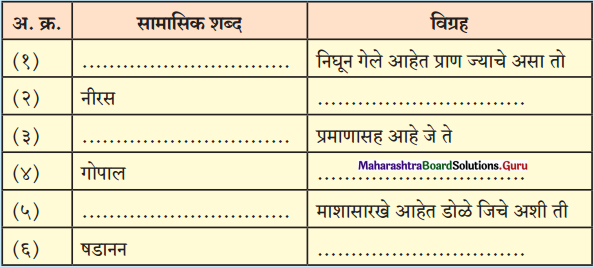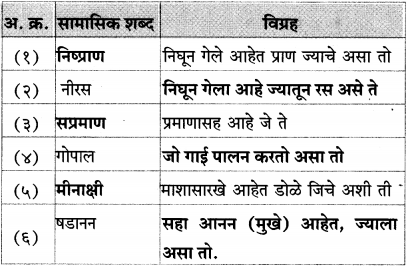Class 12 English Chapter 1.5 The New Dress Question Answer Maharashtra Board
Balbharti Yuvakbharati English 12th Digest Chapter 1.5 The New Dress Notes, Textbook Exercise Important Questions and Answers.
12th Std English Chapter 1.5 Brainstorming Question Answer
12th English Digest Chapter 1.5 The New Dress Textbook Questions and Answers
Question 1.
Write in Column ‘B’ the description of the clothes you would choose to wear for the occasions given in Column ‘A’:
Answer:
| A | B |
| A birthday party | Casual jeans and T-shirt |
| A prize distribution ceremony at school | Formal shirt and trousers |
| A picnic | Colourful casuals, or Shorts and T-shirt |
| An entertainment show | Good jeans and good T-shirt |
![]()
Question 2.
Discuss the criterion of the choice of your clothes with the help of given points:
Answer:
(a) Occasion: whether it is a birthday, wedding, picnic, college festival, etc.
(b) Society (people you may meet at the venue): friends, relatives, classmates, visitors, students from other colleges, etc.
(c) Availability: bought at a store, tailored, borrowed, etc.
(d) Fashion: designer clothes, casual, Indian formal, Western formal, etc.
(e) Your wish/whim: colour of my choice, style, etc.
(f) A suggestion or advice by someone (mother, sister, friend, etc.): Only advice by friends
(g) Any other than the above mentioned reasons: I would choose a dress that would suit me and set off my looks in the best possible way, even if it may be out of fashion. I would not go by whether it is expensive or branded.
Question 3.
Divide the class into groups. Discuss the role of costumes in enhancing your personality:
Answer:
(Points: clothes very important – first impressions important – colours, cut that suit a person – if the clothes are suitable, confidence level increases – however, it is not the cost of clothes but suitability to the wearer and occasion that are important – your clothes also depend on the culture and place.)
Question 4.
State whether you agree or disagree with the following statements and discuss the reasons:
Answer:
(a) A simple dress makes one’s personality look dull.
(Disagree – if the cut is good, the cloth is good – it suits the wearer – a simple dress can be excellent.)
(b) We should not judge ourselves from the comments we receive from others.
(Agree – we should have self-esteem – trust our judgement – do not have to seek approval from others – people may be envious, etc.)
(c) A fashionable and costly dress makes you look rich, intelligent and beautiful.
(Disagree – the dress must suit the wearer – should be worn with confidence – wearer should have good posture – accessories should be well-matched, etc.)
(d) We should choose a dress according to the fashion rather than our choice.
(Disagree – if we choose according to fashion, may not be comfortable – the fashion may not suit us-we may feel self-conscious – hence choose a dress according to our choice.)
![]()
(A1)
Question (i)
There are a few other characters mentioned in this extract. Discuss the way their reactions help us to understand the inferiority complex of Mabel.
Answer:
Mabel told Robert Haydon that she felt like some dowdy, decrepit, horribly dingy old fly. She said it to reassure herself and appear detached and witty, and to show that she did not feel in the least out of anything.
Robert Haydon probably replied something to praise her, which Mabel felt was just politeness, and that he was being insincere. Though she was constantly looking for approval from others, she always felt suspicious when someone actually praised her, or said something in her favour. This shows that she has no self-esteem and a very big inferiority complex.
(A2)
Question (i)
Pick out the sentence/s from the extract which describe the ambience of the party at Mrs. Dalloway’s place.
Answer:
1. If she had been dressed like Rose Shaw, in lovely, clinging green with a ruffle of swansdown.
2. For she would not join Charles Burt and Rose Shaw, chattering like magpies and perhaps laughing at her by the fireplace.
Question (ii)
Mabel is thinking too much about her dress. Pick out two sentences supporting the above statement.
Answer:
1. It seemed to her that the yellow dress was a penance which she had deserved.
2. Then Mrs Holman was off, thinking her the most dried-up, unsympathetic twig she had ever met, absurdly dressed, too, and would tell every one about Mabel’s fantastic appearance.
Question (iii)
Critically analyze Mabel’s weak economic conditions in the past as one of the reasons that led her to choose the old-fashioned dress.
Answer:
Mabel did not belong to a rich family. She was one of a family of ten. They always had to be careful about their expenses, always counting the pennies. Her mother had to carry big cans the linoleum on the stairs was worn off, and there was always some minor domestic tragedy taking place.
Even when they went to seaside resorts, they stayed at lodges which never faced the sea directly, but at an odd angle, so that they had to squint to see the sea. Maybe indirectly she was still fighting with her weak economic conditions of the past, and this had made her choose the old-fashioned dress or it could have been some memories of the past that made her do it.
Question (iv)
The cause of Miss Mabel’s disappointment is not only her poor background in the past but her too much bookishness also Substantiate.
Answer:
To a certain extent this is true. She keeps thinking about the depressing lines she has read written by Shakespeare; she also keeps thinking of the story of the fly and the saucer, and how she is a fly and the others are dragonflies, butterflies and beautiful insects. Probably her over-active imagination, which led to her continuous disappointment with various things, was also due to extensive reading.
![]()
Question (v)
Do you appreciate Mabel’s tendency of deciding her own value from the comments given by others? Explain your views.
Answer:
No, I don’t. We all have our own likes and dislikes; we should wear what we like and behave in the manner we think is appropriate. We should not depend on the approval and comments of others to decide our value and worth. This is done only by those who have no confidence in themselves and no self-esteem.
(A3)
Question (i)
Write the synonyms for the word ‘dress’ by filling appropriate letters in the blanks. One is done for you.
Answer:
(a) a t t i r e
(b) g a r b
(c) c o s t u m e
(d) g a r m e n t
(e) o u t f i t
(f) a p p a r e l
Question (ii)
Conchology means the scientific study or collection of mollusc shells. Find out the meanings of:
1. Etymology
2. Archaeology
Answer:
1. Etymology – the study of the origin and history of words.
2. Archaeology – the scientific study of material remains (such as tools, pottery, jewelry, stone walls, and monuments) of past human life and activities.
(A4)
(i) Use the correct tense form of the verbs given in the brackets and rewrite the sentences.
Question (a)
She ………………….. (take/takes/took/had taken) that old fashion book of her mother a few months back.
Answer:
She had taken that book of her mother a few months back.
Question (b)
She ……………… (pecking/pecks/pecked) at her left shoulder for quite some time.
Answer:
She pecked at her left shoulder for quite some time.
Question (c)
One human should (done /doing/be doing) this for another always.
Answer:
One human should be doing this for another always.
![]()
Question (d)
All this (will be/is/have been) destroyed in a few years.
Answer:
All this will be destroyed in a few years.
Question (e)
She (feels/felt/will be feeling) like a dressmaker’s dummy standing there.
Answer:
She felt like a dressmaker’s dummy standing there.
(ii) Do as directed:
Question (a)
Lata will sing tonight. (Make it less certain.)
Answer:
Lata may sing tonight.
Question (b)
You should wear your uniform. (Show ability.)
Answer:
You can wear your uniform.
Question (c)
Sandeep may study to clear the examination. (Make it obligatory/compulsory.)
Answer:
Sandeep must study to clear the examination.
Question (d)
I can do it. (Make a sentence seeking permission.)
Answer:
May I do it?
(iii)
Question (a)
Frame three rules for the students of your college. (Non-textual grammar)
Answer:
1. Students must wear identity cards in the college premises.
2. Students must not loiter near the college gate.
3. Every student must have at least 75% attendance in every subject.
![]()
Question (b)
Frame three sentences giving advice to your younger brother.
Answer:
1. You should make a timetable for revision at least a month before the exams.
2. You should not eat junk food.
3. You should visit your dentist at least once every six months.
Question (iv)
Fill-in the blanks with appropriate modal auxiliaries according to the situation given in the following sentences:
Answer:
(a) Take an umbrella. It might rain later.
(b) People must not walk on the grass.
(c) May I ask you a question?
(d) The signal has turned red. You must wait.
(e) I am going to the library. I could find my friend there.
(A5)
Question (i)
Virginia Woolf has created many characters other than Miss Mabel with great skill. Write a character sketch of any one of them.
Answer:
One of the guests at Mrs. Dalloway’s party was Charles Burt. Mabel was impressed by him and longing for some praise from him. However, he was a malicious person, with no heart, no fundamental kindness and only a superficial appearance of friendliness. He liked to poke fun at people and see their reactions. He probably also liked to gossip about people and discuss them behind their backs, but his opinion made a great difference to Mabel.
Question (ii)
‘Clothes mean nothing until someone lives in them.’ Expand the idea in your own words.
Answer:
Clothes mean nothing until someone lives in them These are the words of Marc Jacobs, a fashion designer. It means that clothes gain importance and character only when someone is wearing them. The first impression that people have of a person is not only through the clothes that one is wearing but the way one is wearing those clothes.
The style a person adopts tells people a lot about his/her personality and character. The best and most expensive clothes can be unimpressive if the wearer does not carry himself/herself well. On the contrary, the simplest of clothes can look good and impressive if the wearer has good posture, self-confidence and self-esteem.
Hence, when we are buying clothes, we must not only be sure that they will suit us but that we will be comfortable in them and able to carry them well. So, we must choose clothes that make us feel good about ourselves, confident and happy.
![]()
(A6)
Question 1.
Go to a library and read the following books:
(a) ‘A Haunted House’ by Virginia Woolf
(b) ‘Mrs. Dalloway’ by Virginia Woolf
(A7)
Question 1.
Find out information about career opportunities in the following fields:
- Fashion designing
- Dress designing
- Textile industry
- Garment industry
- Image consultancy
- Psychology and Psychiatry
Yuvakbharati English 12th Digest Chapter 1.5 The New Dress Additional Important Questions and Answers
Read the extract and complete the activities given below:
A1. Global Understanding:
Question 1.
Complete the following:
Answer:
1. What depressed Mabel was her appalling inadequacy, her cowardice and her mean, water-sprinkled blood.
2. The feeling that grew stronger as she went upstairs was that something was not quite right.
3. The eyelids of the guests flickered and then shut rather tight.
Question 2.
Complete the following:
Answer:
- According to Mabel, fashion means cut, style, and cost, at least thirty guineas.
- When Mabel was sitting over the teacups, she had thought that she could not be fashionable.
- The book Mabel had chosen was an old Paris fashion book of her mother’s, of the time of the Empire.
- Rose Shaw’s lips had a little satirical pucker.
![]()
Question 3.
Mabel knew that these were her main faults:
Answer:
envy and spite
Question 4.
Mable tried to imagine them like flies:
Answer:
Rose Shaw and all the other people
Question 5.
He stopped to listen to Mabel:
Answer:
Robert Haydon
Question 6.
She, Mabel, was a fly but the others were:
Answer:
dragonflies, butterflies, beautiful insects
Question 7.
Complete the following:
Answer:
1. Miss Milan’s workroom was terribly hot, stuffy and sordid, smelling of clothes and cabbage cooking.
2. When Mabel looked at herself in the glass, she saw a grey-white, mysteriously smiling, charming girl, the core of herself.
![]()
Question 8.
Match the following and write the complete answers:
| A | B |
| 1. Miss Milan wanted to know | (a) pick a hemp seed from between her lips. |
| 2. Miss Milan let the canary | (b) to be so dependent on people’s opinions. |
| 3. Mabel felt it was very weak | (c) she suffered tortures and was awoken to reality. |
| 4. When Mabel was in Miss Dalloway’s drawing-room. | (d) about the length of the skirt. |
Answer:
- Miss Milan wanted to know about the length of the skirt.
- Miss Milan let the canary pick a hemp
- Mabel felt it was very weak to be so dependent on people’s opinions.
- When Mabel was in Miss Dalloway’s drawing-room she suffered tortures and was awoken to reality.
Question 9.
Pick out the sentences that are false and write them correctly:
Answer:
1. Mabel was not at all confident when she went into the room.
2. Rose Shaw was actually looking very fierce and tragic.
3. Charles Burt wanted to talk to Mabel.
4. Charles Burt told Mabel that she was looking charming.
False sentences:
2. Rose Shaw was actually looking very fierce and tragic.
3. Charles Burt wanted to talk to Mabel.
4. Charles Burt told Mabel that she was looking charming.
Corrected sentences:
2. Mabel imagined that Rose Shaw would look very fierce and tragic.
3. Mabel wanted to talk to Charles Burt.
4. Mabel wished that Charles Burt had told her that she was looking charming.
Question 10.
Match the sentences from Box A and Box B and rewrite the completed sentences:
Answer:
A:
1. Mrs. Holman did not notice Mabel’s dress
2. Mabel was angry because
3. Mrs. Holman leaned forward and told Mabel
4. Mabel compared the clamour and greed of human beings for sympathy
B:
(a) Mrs. Holman treated her like a house agent or messenger boy.
(b) how her eldest boy had strained his heart running.
(c) to a row of cormorants, barking and flapping their wings.
(d) because she was worried about her family.
Answer:
- Mrs. Holman did not notice Mabel’s dress because she was worried about her family.
- Mabel was angry because Mrs. Holman treated her like a house agent or messenger boy.
- Mrs. Holman leaned forward and told Mabel how her eldest boy had strained his heart running.
- Mabel compared the clamour and greed of human beings for sympathy to a row of cormorants, barking and flapping their wings.
![]()
Answer in very brief:
Question 1.
What did Mabel do to look busy?
Answer:
punched the cushions
Question 2.
Who were chatting near the fireplace?
Answer:
Charles Burt and Rose Shaw
Question 3.
What was Rose Shaw wearing?
Answer:
a lovely, clinging green dress with a ruffle of swansdown
Question 4.
What type of job did Hubert have?
Answer:
a safe, permanent underling’s job in the Law Courts
Question 5.
Who was Mabel’s hero?
Answer:
Sir Henry Lawrence
Question 6.
Where did Mabel dream of living?
Answer:
in India
Question 7.
Choose the correct alternative and fill in the blanks:
- The children ……………. as they paddled. (shouted/cried)
- The Goddess was …………….. but ……………. (ugly/kind/beautiful/cruel)
- Mabel was years old. (fifty/forty)
- All Mabel’s brothers and sisters were …………….. people, (strong/weak)
- Mabel went to the seaside at ……………. .(Christmas/Easter)
- Now that Mabel was older, the stories about the fly and the saucer would come more ……………… (seldom/often)
Answer:
- The children shouted as they paddled.
- The Goddess was beautiful but cruel.
- Mabel was forty years old.
- All Mabel’s brothers and sisters were weak people.
- Mabel went to the seaside at Easter.
- Now that Mabel was older, the stories about the fly and the saucer would come more seldom.
Question 8.
Who said to whom:
OR
Complete the following table:
Answer:
| The Words | Who said | To whom |
| “I have enjoyed myself.” | Mabel | Mr. Dalloway |
| “Lies, lies, lies!” | Mabel | To herself |
| “But it’s too early to go.” | Mrs. Dalloway | Mabel |
| “Right in the Saucer!” | Mabel | To herself |
Complex Factual:
Question 1.
Pick out the sentences from the extract which describe the ambience of the party at Mrs. Dalloway’s place.
Answer:
Mrs. Barnet, while handing her the mirror and touching the brushes and thus drawing her attention, perhaps rather markedly, to all the appliances for tidying and improving hair, complexion, clothes, which existed on the dressing table.
![]()
Question 2.
Who was Mrs. Barnet? Describe her behaviour.
Answer:
Mrs. Barnet was probably the maid or housekeeper. She held the mirror, touched the brushes, and drew Mabel’s attention, rather markedly, to the appliances kept on the dressing table for improving one’s looks. She indirectly indicated to Mabel that something about Mabel’s looks was not quite right.
Question 3.
Mabel is thinking too much about her dress. Pick out a sentence supporting the above statement.
Answer:
She could not face the whole horror – the pale yellow, idiotically old-fashioned silk dress with its long skirt and its high sleeves and its waist and all the things that looked so charming in the fashion book, but not on her, not among all these ordinary people.
Question 4.
Pick out the sentences from the extract which describe the ambience of the party at Mrs. Dalloway’s place.
Answer:
Rose herself being dressed in the height of the fashion, precisely like everybody else, always.
Question 5.
Describe the dress Mabel was wearing, What had been Mabel’s thoughts about it earlier?
Answer:
The dress was a pale yellow, old-fashioned silk dress, with a long skirt and high sleeves and waist. It had looked so charming in the fashion book, but not on her. Mabel had thought earlier that the dress would I make her look modest, old-fashioned and charming.
Question 6.
Pick out the sentences from the extract which describe the ambience of the party at Mrs. Dalloway’s place.
Answer:
She was a fly, but the others were dragonflies, butterflies, beautiful insects, dancing, fluttering, skimming.
Question 7.
What did Mabel say to Robert Haydon, and why did she say it? Describe their interactions.
Answer:
Mabel said that she felt like some dowdy, decrepit, horribly dingy old fly. She said it to reassure herself and appear detached and witty, and to show that she did not feel in the least out of anything. Robert Haydon heard this and replied with some polite and insincere words.
Question 8.
Mabel is thinking too much about her dress. Pick out some sentences supporting the above statement.
Answer:
She looked at herself with the dress on, finished, an extraordinary bliss shot through her heart. Suffused with light, she sprang into existence.
![]()
Question 9.
Describe Miss Milan.
Answer:
Miss Milan was poor and hard-working. Her face was red and her eyes bulged. Her pleasures in life were few and cheap; one of them was allowing her pet canary to pick a hemp-seed from between her lips. She was patient and had to endure a lot of difficulties.
Question 10.
Mabel is thinking too much about her dress. Pick out a sentence supporting the above statement.
Answer:
She issued out into the room, as if spears were thrown at her yellow dress from all sides.
Question 11.
Pick out the sentence/s from the extract which describe the ambience of the party at Mrs. Dalloway’s place.
Answer:
……….. and not be whipped all around in a second by coming into a room full of people.
Question 12.
Describe Mabel’s behaviour as she entered the room.
Answer:
Mabel went out into the room, as if spears were thrown at her yellow dress from all sides. But instead of looking fierce or tragic, she looked foolish and self-conscious. She smiled in a silly way, like a schoolgirl, and slouched across the room, moving quietly, as if she were a beaten dog. She then stood by herself and looked at a picture-from shame, from humiliation.
Question 13.
What had been Mabel’s dreams before marriage? Did they come true?
Answer:
Mabel had dreamt of living in India, married to some hero like Sir Henry Lawrence, or some empire builder. However, she had failed utterly, and had married Hubert, who had an ordinary job in the Law Courts. They lived in a small house without proper maids.
Question 14.
Discuss Mabel’s opinion of herself as a wife and mother.
Answer:
Mabel felt that she had always been a fretful, weak, unsatisfactory mother, and an unsteady and uncertain wife. She felt that she was hanging about lazily in a kind of twilight existence with nothing very clear or very bold, or standing out.
![]()
Question 15.
Describe the actions of the fly in Mabel’s imagination. Would the fly behave in the same way (as it did in her imagination), now that she was forty?
Answer:The fly in her imagination suddenly struggled out sometimes. But now that she was forty, she felt that the fly, and she, Mabel, would gradually cease to struggle any more.
Question 16.
Pick out the sentences from the extract which describe the ambience of the party at Mrs. Dalloway’s place.
Answer:
- “But it’s too early to go,” said Mrs. Dalloway, who was always so charming.
- “I have enjoyed myself,” she said to Mr. Dalloway, whom she met on the stairs.
- She thanked Mrs. Barnet for helping her.
Question 2.
Describe Mabel’s plans and expectations for the next day.
Answer:
Mabel planned that she would go to the London Library the next day. She would find some wonderful, helpful, astonishing book, by a clergyman or by an American no one had ever heard of or she would walk down the Strand and drop into a hall where a miner was telling about the life in the pit, and suddenly she would become a new person. She would be transformed. She would wear a uniform; somebody would call her Sister : she would never give a thought to clothes again. And after that she would be perfectly clear about Charles Burt and Miss Milan forever.
Inference/Interpretation/Analysis:
Question 1.
There is another character mentioned in this extract. Discuss the way his/ her reactions help us to understand the inferiority complex of Mabel.
Answer:
Mrs. Barnet touched the brushes and drew Mabel’s attention, rather markedly, to the appliances kept on the dressing table for improving one’s looks. She indirectly indicated to Mabel that something about Mabel’s looks was not quite right. Mabel immediately lost whatever confidence she had. This shows us that Mabel’s inferiority complex was so deep and strong that even a housekeeper’s hint rattled her and made her lose confidence.
![]()
Question 2.
Complete the following:
‘RIGHT’ signifies ………………. .
Answer:
‘RIGHT’ signifies the suitability of the dress for the occasion.
Question 3.
Complete the following:
She was afraid of looking in the mirror/glass because
Answer:
She was afraid of looking in the mirror/glass because she felt that she looked horrible in the pale yellow, old-fashioned silk dress, with a long skirt and high sleeves and waist.
Question 4.
There is another character mentioned in this extract. Discuss the way his/her reactions help us to understand the inferiority complex of Mabel.
Answer:
Rose Shaw looked at Mabel up and down, twisting her lips in a sarcastic manner, Mabel had expected her to do this. Mabel also felt that Rose and all the others present were dressed, as always, in the height of fashion. This shows us how sensitive Mabel was to the behaviour of others and how she thought j that they were always right in fashion, while she was not. This indicates Mabel’s lack of self-esteem and self-worth.
Question 5.
What was Mabel’s imagination about flies?
Answer:
Mabel felt that we are all like flies trying to crawl over the edge of the saucer, some crawling slowly with their wings stuck together. In order to make the other people at the party look insignificant and unimportant, she tried hard to visualize them as poor, struggling flies, trying to pull themselves out of something or into something.
However, her inferiority complex was so strong that she ultimately saw only herself as a fly trying to drag itself out of the saucer. She saw the others as dragonflies, butterflies, beautiful insects, dancing, fluttering and skimming lightly.
![]()
Question 6.
Complete the following:
Answer:
Mabel’s eyes were filled with tears because she felt sorry for poor Miss Milan, who had such few pleasures in life. Those too were cheap ones, like allowing her pet canary to pick a hemp-seed from between her lips. Miss Milan was helping Mabel to become fashionable, and hence Mabel felt very fond of her and full of pity for her condition.
Question 7.
Discuss different pessimistic thoughts in Mabel’s mind.
Answer:
Mabel felt that all the thrill she had felt in her dress had vanished when she entered Mrs. Dalloway’s drawing room, and her eyes were opened to the reality of the dress. She felt depressed and weak that at her age, and with two children, she cared so much about the opinions of other people and did not have any principles or convictions of her own. She was upset that she could not take things lightly, as others did. She found plenty of faults in herself.
Question 8.
There is another character mentioned in this extract. Discuss the way his/ her reactions help us to understand the inferiority complex of Mabel.
Answer:
Mabel told Charles Burt that ‘it’ was old- fashioned, hoping that he would think it was the picture she was talking about, and not her dress. She longed for Charles’ approval, and hoped he would say that she looked charming. But Charles Burt laughed at her, and this upset her tremendously.
She wished she had the confidence to be sure that Miss Milan was right about her dress and Charles was wrong, but unfortunately that was not so, and Charles’ laughter and his malice made her feel even more humiliated and inferior than before. This shows us that Mabel depended heavily on the approval of others and had no self-esteem.
Question 9.
There is another character mentioned in this extract. Discuss the way his/her reactions help us to understand the inferiority complex of Mabel.
Answer:
When Mrs. Holman asked her questions about Elmthorpe and other things, Mabel was furious to be treated like a house agent or a messenger boy, to be made use of. It shows that she is insecure about herself, and feels that people are always humiliating her. Even a person like Mrs. Holman, who is having a difficult time with her family, can make Mabel feel insecure and inferior.
Question 10.
There are a few other characters mentioned in this extract. Discuss the way their reactions help us to understand the inferiority complex of Mabel.
Answer:
Mabel thought that Charles Burt and Rose Shaw were chatting together by the fireplace and laughing at her. She could not hear them, but this was her imagination and inferiority complex which made her think so. Mabel even felt that poor Mrs. Holman was laughing at her dress, and that she would tell everyone about it. Mrs. Holman had so many of her own problems that she probably never even thought of it, but Mabel’s lack of confidence made her feel so.
Question 11.
Describe Mabel’s ‘delicious/divine’ and ‘flat’ moments. Was there a reason for them?
Answer:
The delicious moments of Mabel’s life were reading contentedly in bed, or being down by the sea in the sun and sand at Easter, listening to the melody of the waves and the happy shouts of the children paddling in the water. Also, sometimes she had these moments with Hubert, when he was carving the mutton for Sunday lunch, opening a letter, or coming into the room. On the other hand, sometimes, when everything was arranged – music, weather, holidays – and there was every reason for happiness, it turned suddenly flat.
![]()
Question 12.
Complete the following:
The last sentence suggests that
Answer:
The last sentence suggests that however hard Mabel tries to be stylish or fashionable, she is ultimately a middle-class, ordinary woman. She did not have enough money to buy a new cloak. She could not have competed with the rich, stylish people at the party. However, she did not want to accept this fact gracefully, but always felt inferior.
Question 13.
“I have enjoyed myself,” said Mabel. Was this the truth? Give reasons for your answer.
Answer:
This was not the truth. Though Mabel tells Mr. and Mrs. Dalloway that she has enjoyed herself, she says “Lies, lies, lies!” to herself while going down the stairs. She also mentions that she, like the fly, is right back in the saucer, implying that she would again have to struggle unhappily to climb out of it.
Personal Response:
Question 1.
List the criteria you use to choose a dress/outfit.
Answer:
When I buy a dress, the first thing I look at is the price. If it is beyond my budget, I don’t even think of buying it, however much I like it. I then look at the colour and cut. I do not go in for branded stuff as I feel they are unnecessarily expensive. I am careful while buying clothes as I have limited pocket money. I try to buy things which I can mix and match.
Question 2.
Describe the kind of clothes you wear to college. Do you feel that your clothes do not match to those worn by your friends?
Answer:
I normally wear jeans and T-shirts to college. Everyone else wears the same. All my friends belong to middle-class families, and none of us go in for very fashionable or expensive clothes. I only try to choose colours that I know will look good on me. So, I am quite comfortable with my clothes and know that I look what I am – a young college student!
Question 3.
Do you look for approval from others when you do something/wear something?
Answer:
Yes, to a certain extent I do. After all, we are not solitary human beings, we live in society. When I wear a dress that I think is good, I like others to approve of it too. But I do not get upset if they don’t, because I know that everybody’s tastes are different. In the same way, if I do something outstanding and no one notices it, I do get a bit upset but then I console myself that I am happy, and that is what matters.
Question 4.
Name some simple things that make you feel really happy. Explain why it is so.
Answer:
I feel really happy at the beginning of spring. Just outside my bedroom window there are a few trees which lose their leaves in winter, but get fresh, tender green leaves in March. I watch the increase of leaves daily, and feel very happy. It sort of makes me feel that there is hope and life everywhere, even after a dreary winter.
Question 5.
Does your attention often wander when people are talking to you? Give examples.
Answer:
No, in general it does not. I try to pay full attention when someone is talking to me. But if the person is very slow, or is talking on a very boring topic or boasting, then my attention does wander. For example, the other day my neighbour Aditya was telling me in great detail about some great thing that he did. Aditya is a big liar, and exaggerates everything, so my attention wandered and he got upset with me!
Question 6.
Do you feel nervous/confident when you are at a party? Give examples.
Answer:
If I am attending a party where I do not know the people very well, then I feel nervous. For example, I was invited to a party at my school teacher’s house, in the next building. I did not know anyone there except my teacher, and I felt quite nervous. But when I attend a friend’s party, or a family gathering then I do not feel nervous at all. In fact, I look forward to such parties.
![]()
Question 7.
Describe your relationship with your siblings/cousins.
Answer:
I have an elder sister, who is two years older than me. I get along very well with her, because she is kind and very loving. She helps me a lot in my studies, and in choosing my clothes. She has many friends, and I know all of them and get along well with them. We enjoy watching movies at home and listening to music.
Question 8.
Describe one fulfilled/unfulfilled dream of yours.
Answer:
I am an avid reader. I have read many books written by English authors, in which they have described places in England and Scotland, and the beautiful green scenery. It had been my dream to see all this at least once, but it had seemed impossible, as it would have been very expensive. Then one fine day, a cousin got married in Scotland, and she wanted all of us to be present. My parents decided to go and take me along. We toured UK for fifteen days after the wedding, and my dream was fulfilled.
Language Study:
Question 1.
Mabel had her first serious suspicion that something was wrong as she took her cloak off.
(Frame a wh-question to get the underlined part as the answer.)
Answer:
When did Mabel have her first serious suspicion that something was wrong?
Question 2.
What a fright she looks! What a hideous new dress! (Rewrite as assertive sentences.)
Answer:
She looks a real fright. The new dress is very hideous.
Question 3.
Rewrite as an assertive sentence:
“How dull!”
Answer:
It was very dull.
Question 4.
She dared not look in the glass. She could not face the whole horror.
(Rewrite as affirmative sentences.)
Answer:
She was afraid to look in the glass. She was unable to face the whole horror.
![]()
Question 5.
If she could say that over often enough, she would become numb, chill, frozen, dumb.
(Pick out the clauses and state their type.)
Answer:
she would become numb, chill, frozen, dumb – main clause
If she could say that over often enough – adverb clause of condition
Question 6.
“Lies! Lies! Lies!” (Rewrite as an assertive sentence.)
Answer:
It was all lies.
Question 7.
Now she could see flies crawling slowly out of a saucer of milk. (Rewrite using ‘able’.)
Answer:
Now she was able to see flies crawling slowly out of a saucer of milk.
Question 8.
It smelt of clothes and cabbage cooking; and yet, when Miss Milan put the glass in her hand, an extraordinary bliss shot through her heart. (Rewrite using ‘though’.)
Answer:
Though it smelt of clothes and cabbage cooking, when Miss Milan put the glass in her hand, an extraordinary bliss shot through her heart.
Question 9.
She felt much, much fonder of Miss Milan than of any one in the whole world.
(Rewrite using ‘asfond … as’.)
Answer:
She did not feel as fond of anyone in the whole world as she felt of Miss Milan.
Question 10.
Suffused with light, she sprang into existence. (Rewrite as a compound sentence.)
Answer:
She was suffused with light and sprang into existence.
Rewrite in indirect speech:
Question 1.
If he had only said, “Mabel, you’re looking charming tonight!” it would have changed her life.
Answer:
If he had only told Mabel that she was looking charming that night, it would have changed her life.
![]()
Question 2.
“Mabel’s got a new dress!” he said.
Answer:
He said that Mabel had got a new dress.
Question 3.
“Why,” she asked herself, “can’t I feel one thing always, feel quite sure that Miss Milan is right, and Charles wrong and stick to it?”
Answer:
She asked herself why she couldn’t feel one thing always, feel quite sure that Miss Milan was right, and Charles wrong and stick to it?
Question 4.
Then Mrs. Holman, seeing her standing there, bore down upon her. (Rewrite as a complex sentence.)
Answer:
Then Mrs. Holman, who saw her standing there, bore down upon her.
Question 5.
Mrs. Holman looked at it suspiciously.
(Frame a wh-question to get the underlined word as the answer.)
Answer:
How did Mrs. Holman look at it?
Question 6.
Though Mrs. Holman was leaning forward and telling her how her eldest boy had strained his heart running, she could see her, too, quite detached in the looking glass. (Rewrite using ‘yet’.)
Answer:
Mrs. Holman was leaning forward and telling her how her eldest boy had strained his heart running; yet, she could see her, too, quite detached in the looking glass.
Question 7.
She knew that she was condemned.
(Identify the clauses.)
Answer:
She knew – main clause
that she was condemned – subordinate noun clause
![]()
Question 8.
She would not join Charles Burt and Rose Shaw, chattering like magpies and perhaps laughing at her by the fireplace.
(Rewrite using ‘who’.)
Answer:
She would not join Charles Burt and Rose Shaw, who were chattering like magpies and perhaps laughing at her by the fireplace.
Question 9.
She had married Hubert, with his safe, permanent underling’s job in the Law Courts, and they managed tolerably in a smallish house, without proper maids.
(Pick out the verbs and state their tense.)
Answer:
had married – past perfect tense; managed – simple past tense.
Question 10.
By degrees she would cease to struggle any more. (Rewrite using an adverb of the same meaning in place of the underlined expression.)
Answer:
Gradually, she would cease to struggle any more.
Question 11.
It didn’t matter so long as one never said them. (Rewrite using ‘unless’)
Answer:
It didn’t matter unless one said them.
Question 12.
With Hubert sometimes she had divine moments.
(Rewrite beginning ‘Divine moments…’.)
Answer:
Divine moments were had with Hubert sometimes.
Question 13.
‘I have enjoyed myself,” she said to Mr. Dalloway, whom she met on the stairs. (Rewrite using indirect speech.)
Answer:
She told Mr. Dalloway, whom she met on the stairs, that she had enjoyed herself.
Question 14.
She thanked Mrs. Barnet for helping her.
(Rewrite using ‘because’.)
Answer:
She thanked Mrs. Barnet because she had helped her.
Question 15.
She would never give a thought to clothes again. (Add a question tag.)
Answer:
She would never give a thought to clothes again, would she?
![]()
Vocabulary:
Question 1.
Pick out two words from the extract formed by using prefixes.
Answer:
inadequacy, dissatisfaction
Question 2.
Write the noun forms of:
- improve
- suspect
- attend
- depress
Answer:
- improve – improvement
- suspect – suspicion
- attend – attendance
- depress – depression
Question 3.
Write the adjective forms of the following words :
- fashion
- style
- horror
- thought
Answer:
- fashion – fashionable
- style – stylish
- horror – horrible
- thought – thoughtless/thoughtful
Question 4.
Write the meanings of:
1. satirical
2. chastised
Answer:
1. satirical – sarcastic
2. chastised – punished
Question 5.
Pick out four infinitives from the extract.
Answer:
to make, to hear, to reassure, to crawl.
![]()
Question 6.
Pick out four words ending in ‘ing’ from the extract.
Answer:
trying, crossing, crawling, listening
Question 7.
Write the antonyms of the following words using prefixes:
- endurable
- polite
- sincere
- real
Answer:
- endurable × unendurable
- polite × impolite
- sincere × insincere
- real × unreal
Question 8.
Pick out four abstract nouns from the extract.
Answer:
bliss, existence, patience, endurance.
Question 9.
Pick out four adjectives from the extract:
Answer:
stuffy, sordid, charming, miserable.
Question 10.
Write the verb forms of:
- opinion
- endurance
- bulging
- hot
Answer:
- opinion – opine
- endurance – endure
- bulging – bulge
- hot-heat
Question 11.
Guess the meanings:
1. suffused
2. wrinkles
Answer:
1. suffused – filled with.
2. wrinkles – folds or creases in the skin.
![]()
Question 12.
Match the words in Column A with their meanings in Column B:
| A | B |
| 1. simpered | (a) moving quietly and stealthily |
| 2. slouched | (b) pushed |
| 3. slinking | (c) smiled in an affectedly coy or silly manner |
| 4. shoved | (d) moved in a lazy, drooping way |
| 5. ruffled | (e) superficial appearance |
| 6. veneer | (f) loss of calmness. |
Answer:
- simpered – smiled in an affectedly coy or silly manner
- slouched – moved in a lazy, drooping way
- slinking – moving quietly and stealthily
- shoved – pushed
- ruffled – loss of calmness.
- veneer – superficial appearance
Question 13.
Guess the meanings:
1. scarlet fever
2. self-loathing
Answer:
1. scarlet fever – a bacterial illness; symptoms are a bright red rash that covers most of the body, a sore throat and a high fever.
2. self-loathing – self-hatred.
Question 14.
Write the verb forms of the following :
- humiliation
- agony
- suspicious
- grudgingly
Answer:
- humiliation – humiliate
- agony – agonise
- suspicious – suspect
- grudgingly – grudge
![]()
Question 15.
Match the adjectives in Column A with the nouns in Column B, based on the extract:
| A | B |
| 1. domestic | (a) twig |
| 2. unsympathetic | (b) house |
| 3. feeble | (c) tragedy |
| 4. smallish | (d) creature |
Answer:
- domestic – tragedy
- unsympathetic – twig
- feeble – creature
- smallish – house
Question 16.
Pick out two compound words from the extract:
Answer:
backwater, seaside
Question 17.
Find the meaning:
1. crest of a wave
2. by degrees
Answer:
1. crest of a wave – the top of a wave
2. by degrees – gradually
Question 18.
Write two adjectives from the extract for each of the following, and write down which are the present participles from these:
- moments
- sky
- life
- wife
Answer:
- moments → divine, delicious
- sky → blue, smooth
- life → creeping, crawling
- wife → fretful, weak
Present participles: creeping, crawling.
![]()
Non-Textual Grammar:
Do as directed:
Question 1.
Speechless, she smiled happily and gathered her daughter into her arms.
(Rewrite using the infinitive form of ‘speak’.)
Answer:
Unable to speak, she smiled happily and gathered her daughter into her arms.
Question 2.
He wiped the water off and gently wrapped it in pink paper. (Rewrite as a simple sentence.)
Answer:
Wiping the water off, he gently wrapped it in pink paper.
Question 3.
Dhruv had never received such a gift.
(Rewrite as an affirmative sentence.)
Answer:
It was the first time that Dhruv had received such a gift.
![]()
Spot the error in the following sentences and rewrite them correctly:
Question 1.
Not only did his speech improve and his expression also became clearer.
Answer:
Not only did his speech improve but his expression also became clearer.
Question 2.
Must you pass me the salt, please?
Answer:
Can you pass me the salt, please?
English Yuvakbharati 12th Full Digest Section 1 (Prose)
- An Astrologer’s Day Class 11 English Solutions
- On Saying “Please” Class 11 English Solutions
- The Cop and the Anthem Class 11 English Solutions
- Big Data-Big Insights Class 11 English Solutions
- The New Dress Class 11 English Solutions
- Into the Wild Class 11 English Solutions
- Why We Travel Class 11 English Solutions
- Voyaging Towards Excellence Class 11 English Solutions

